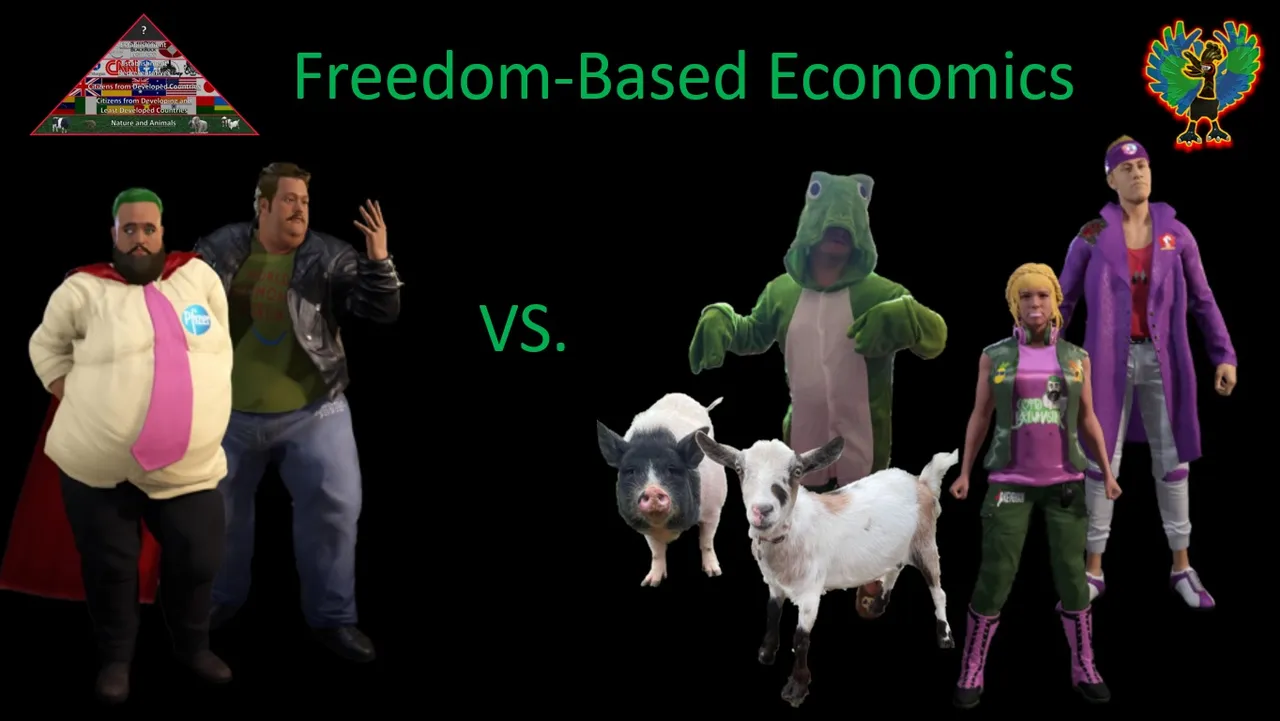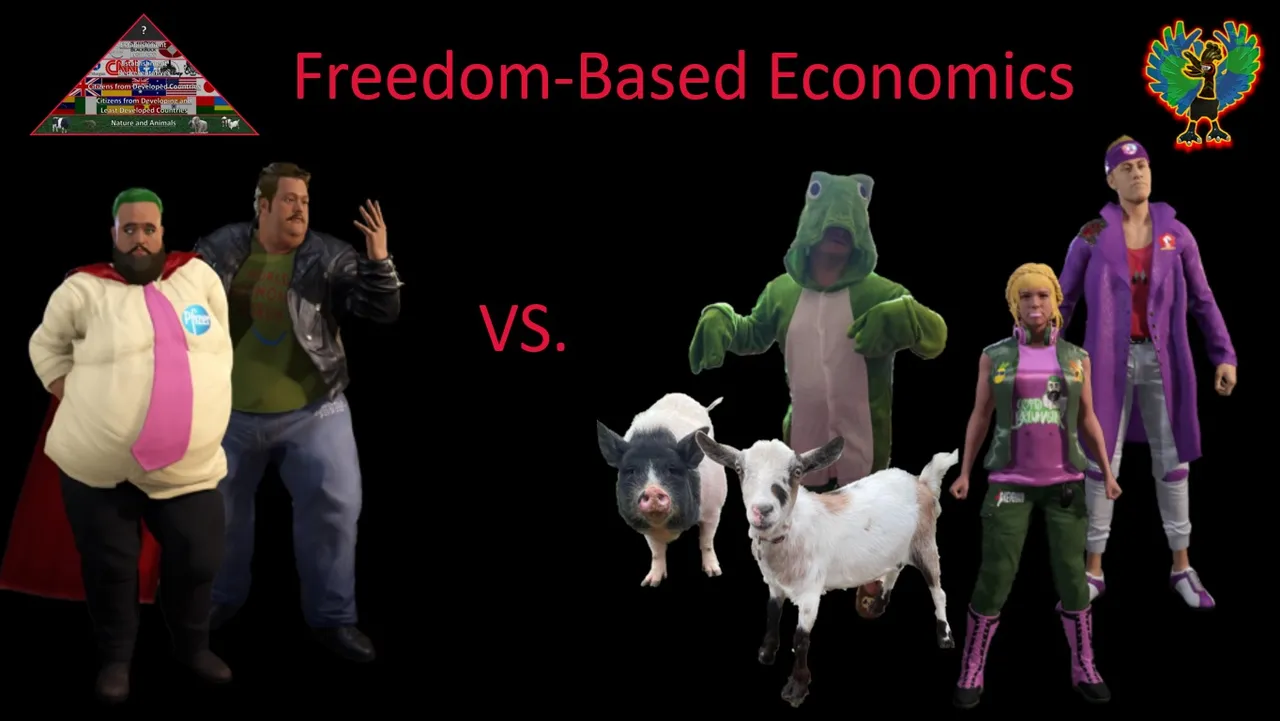
Freedom is a fundamental need. It provides us with opportunities to have the life we desire. To make the most of these opportunities, we need to be able to utilise our freedom to understand ourselves and our needs. After which, we can pursue and attempt to achieve any or all our desires. Freedom offers no guarantees. An inability to effectively utilise freedom can lead to a difficult life. This risk creates opportunity for leaders and Governments to offer guarantees for a decent quality of life in exchange for some freedom. Loss of freedom equates to loss of full control over how we can shape our lives. We become dependent on other people to make decisions and we are left to hope that they are in our best interests. This dependency increases as our freedom is reduced.
Our loss of freedom is someone else’s gain in power. This power could be used in any number of ways. It could be used to ensure that everyone has at least a minimal quality of living; thus, fulfilling the guarantee offered for taking of our freedoms. It could be used in a genuine attempt to improve the quality of our lives beyond the bare minimum. To successfully do so, requires accurate perceptions of our needs and wants as well as the capability to address them. Therefore, we have at least three conditions (i.e. genuine intentions, accurate perceptions, and capability) that need to be met for the sacrifice of freedom to give us ideal results. All three conditions are out of our control. Any of these conditions can become vulnerable whenever there is a change in the people holding the power. It appears for many countries, as power changes hands, that genuine intentions to improve quality of living are quickly forgone; thus, rendering any other conditions irrelevant.
The Shift
For a long time, the world has been experiencing a shift in power and wealth towards the few. These few consist of politicians, bankers, owners of large businesses, and in some cases religious leaders. These people are represented by Government, banks, large businesses, mainstream media, and religious institutions. Together, I refer to these as ‘The Establishment’. Each group has its own area of responsibility in enabling the transfer of power and wealth.
- Government (law, regulations, and policy)
- Media (propaganda and brain washing)
- Banks (money supply and debt)
- Large Businesses (means of production and distribution)
- Religion (ideology and indoctrination)
It is done in such a way to minimise resistance. Most people working within these organisations do not see the bigger picture. Instead, they are exposed to relatively narrow areas and their work is compartmentalised. They cannot see the forest for the trees.
People outside these organisations miss the bigger picture because these organisations appear independent to each other. They appear to be run by different people. They even contradict and openly oppose each other, which further enhances this illusion.
Introduction
Freedom Based Economics
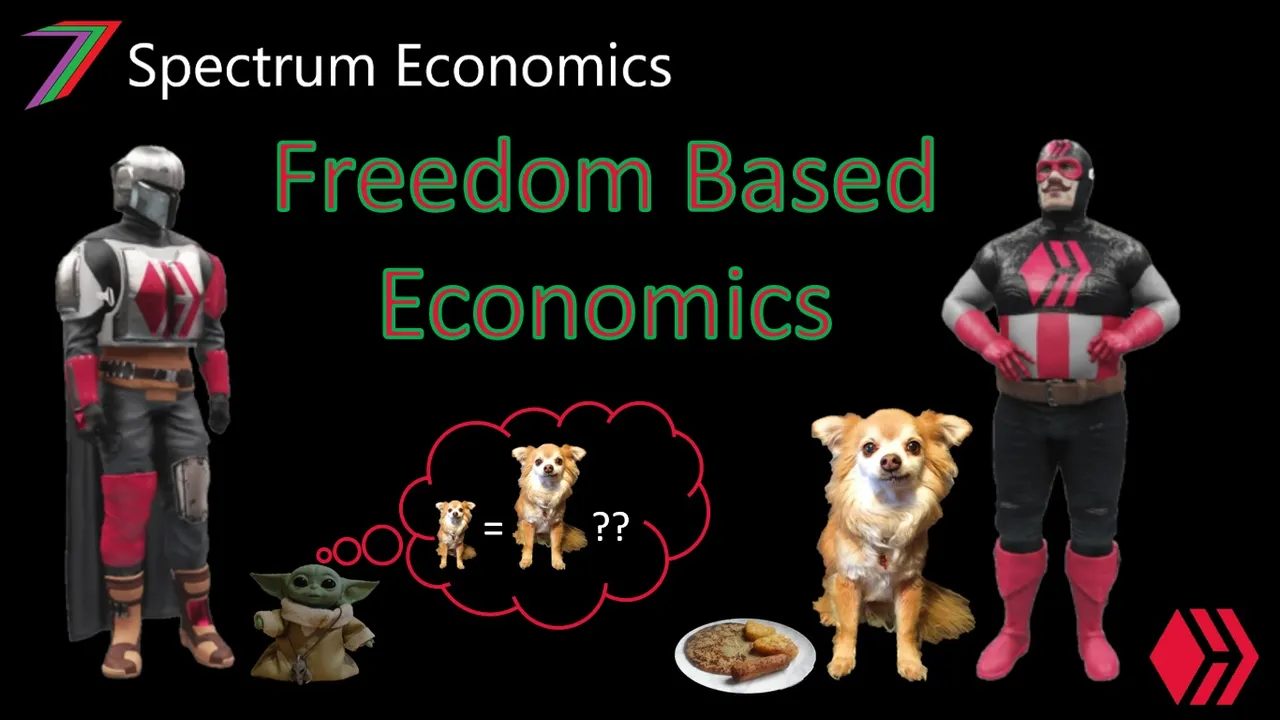
I believe freedom is essential for enabling us to have the lives we want. Freedom does not begin as the easiest path. Instead, it offers opportunity that can be capitalised on through hard work and commitment to our goals. The post outlines the importance of freedom and explains how we can use our freedom to enable us to have the best life possible. The post discusses self-understanding, understanding our ecosystem, and understanding those in our ecosystem. It discusses the importance of both competition and cooperation. It discusses the importance of innovation and the drive for improvement. The post pulls everything together to explain how powerful our freedom can be if we are willing to make the most of it.
Happiness and Freedom
Economic Concepts #1 – Utility
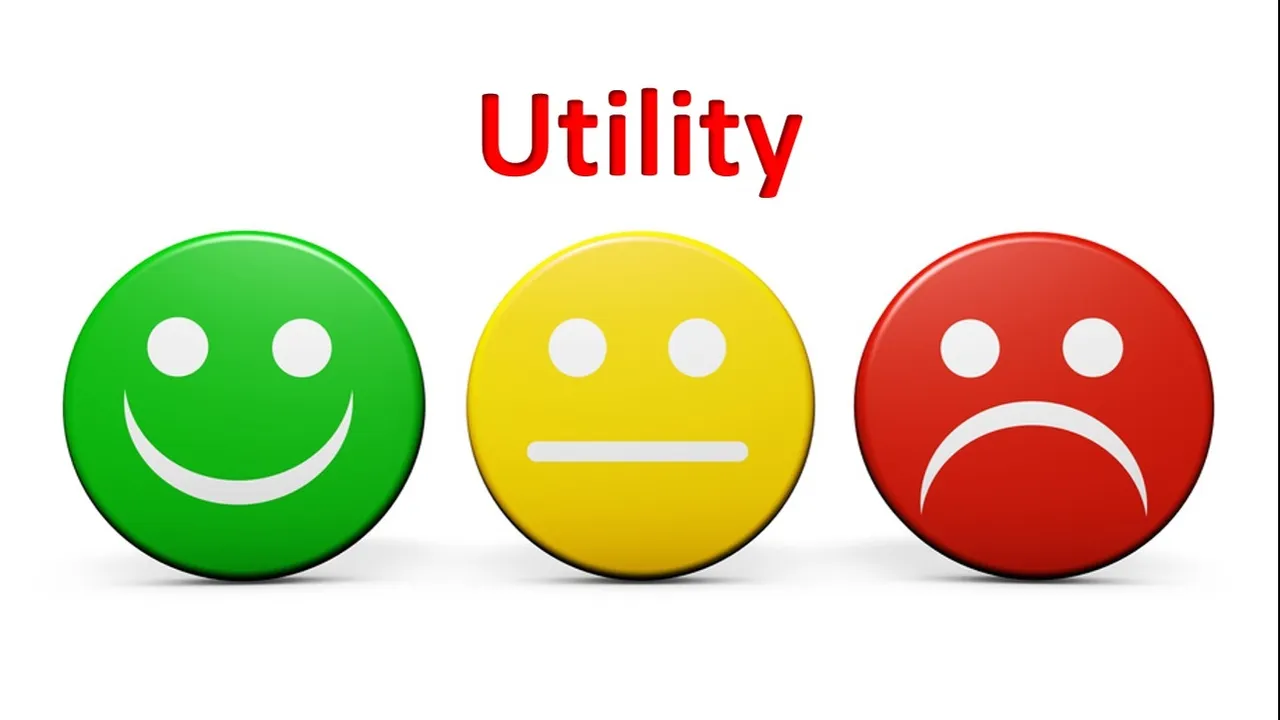
Utility is a fundamental economic concept. It is the satisfaction people obtain from the outcomes of their decisions. It is most commonly linked to consumption of goods and services but it can be expanded to include all activities. We assume people aim to maximise their utility by pursuing outcomes they believe will bring them enjoyment, happiness, satisfaction, and/or a better quality of life.
Freedom as a Path to Happiness
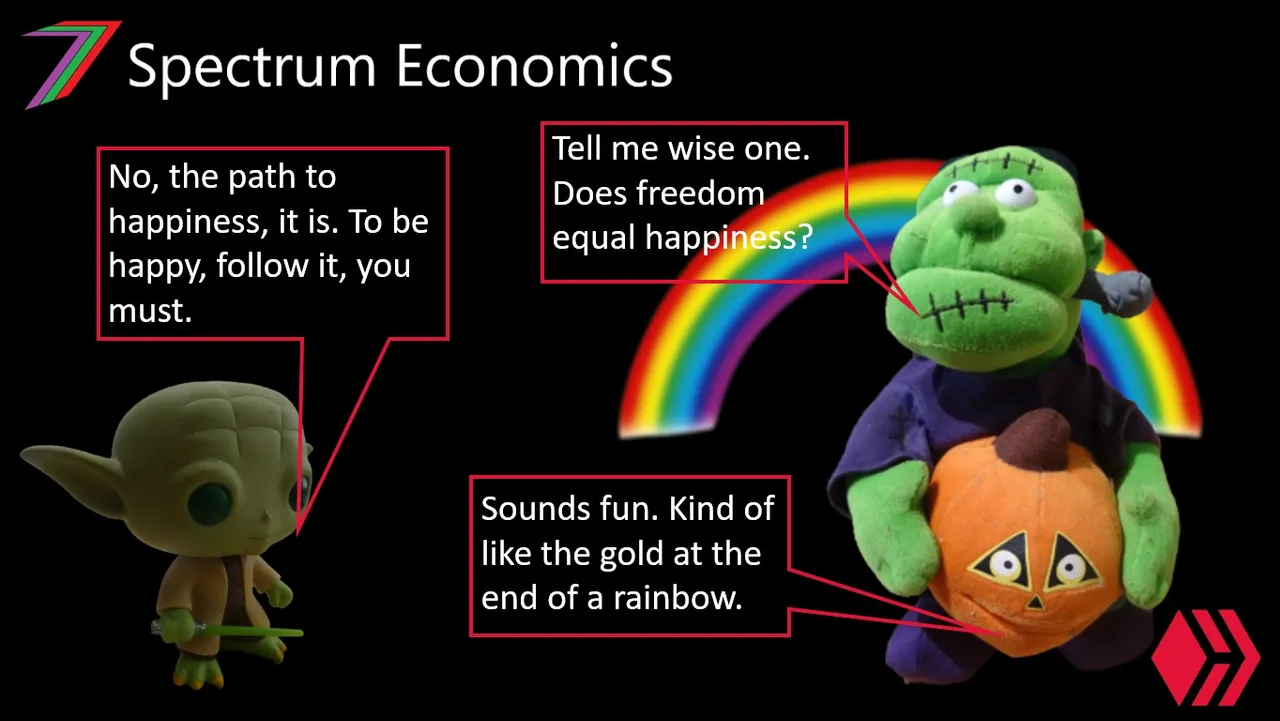
Freedom is not happiness. Freedom does not guarantee happiness. It is an enabler of happiness. We need to learn how to use our freedom to become happy. We need to understand ourselves, the people around us, and our environment. We use this information to help us make decisions that puts us on the path to achieving happiness.
Quality of Life as Quality of Time

The most precious thing we have is time. How we use our time determines the quality of our lives. Accumulating wealth means very little if that wealth is not providing us with a consistently high quality of life. The post explores how we can add value to our lives by balancing our time between activities that earn money as well as the activities we enjoy the most.
Twelve Objectives to Make the Most of Our Freedom
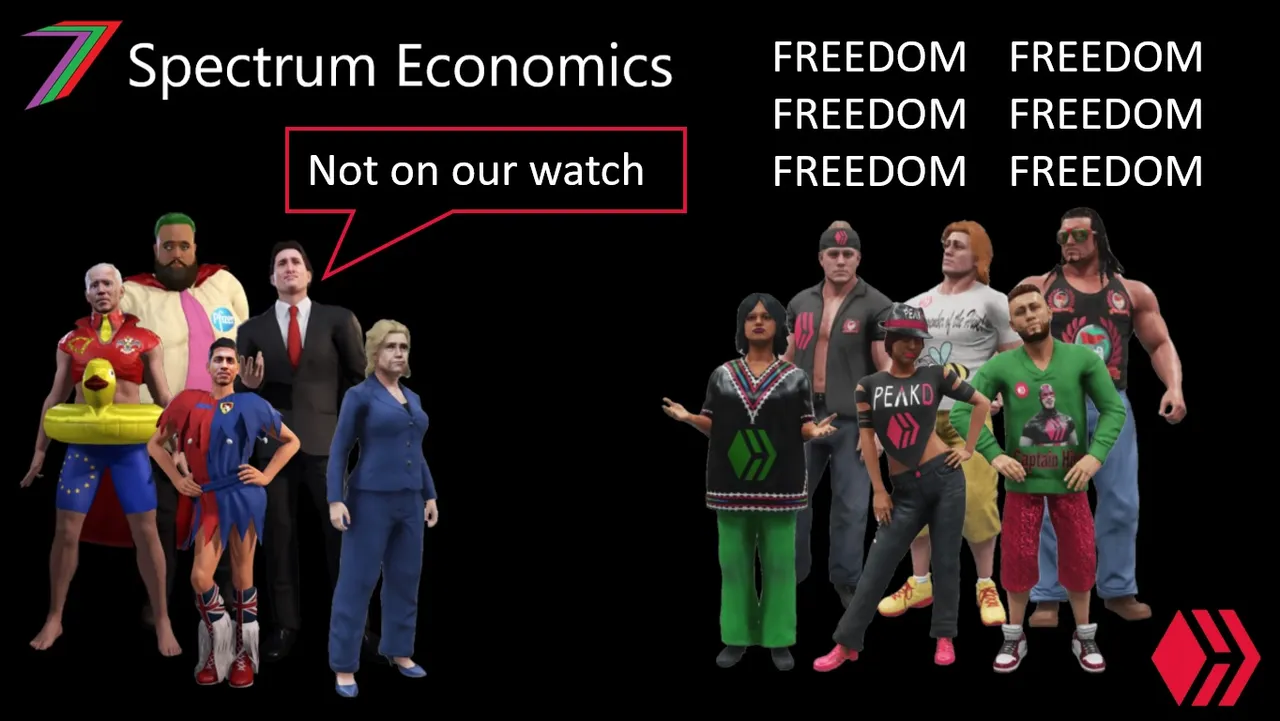
When we have goals, we need ways of achieving them. Freedom gives us opportunities to attempt to meet our goals in any way we like. This post outlines 12 objectives that we could target to make the most of our freedom to obtain the goals we most desire.
How often do you want to succeed?
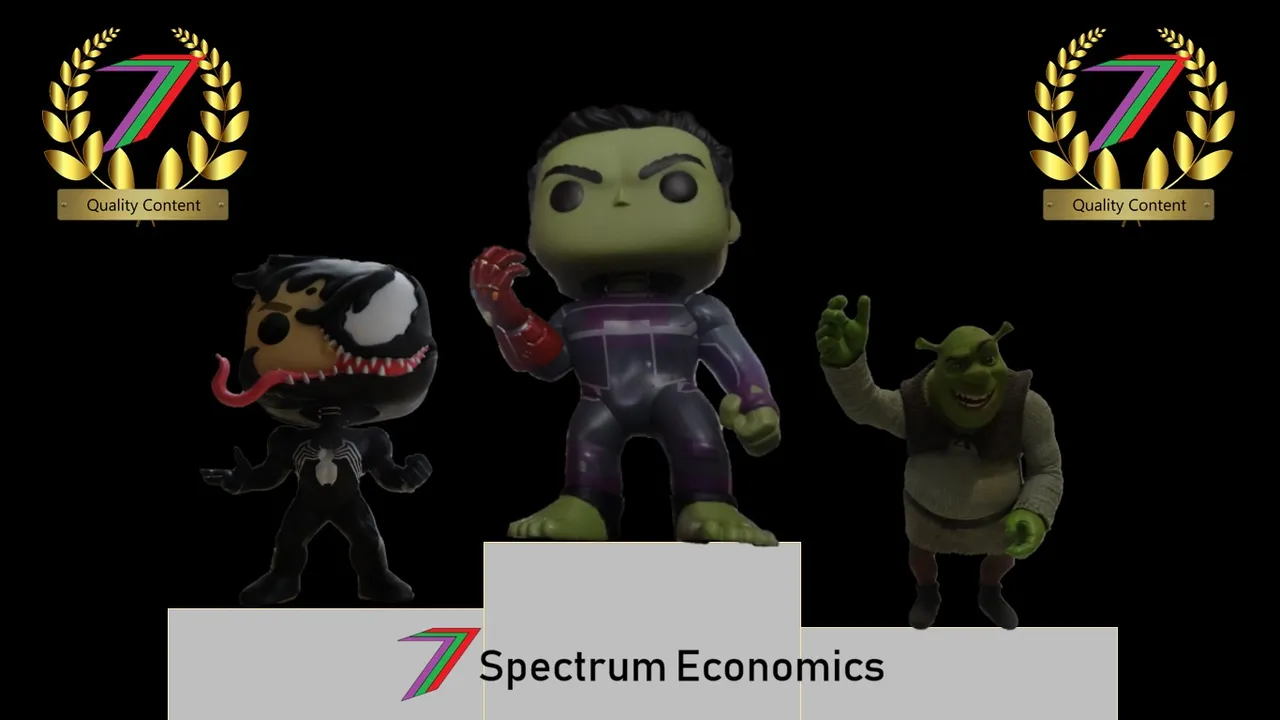
Success and failure are both important aspects of our lives. Success means more if it is harder to achieve. If it is harder to achieve, we are more likely to fail. If success is too hard to achieve we may never achieve it. Therefore, we need to balance our yardsticks for success. They need to be sufficiently difficult for success to be meaningful but not too difficult that it is unobtainable.
Us, Them, and Everyone
Freedom for Us, Them, and Everyone (Part 1)
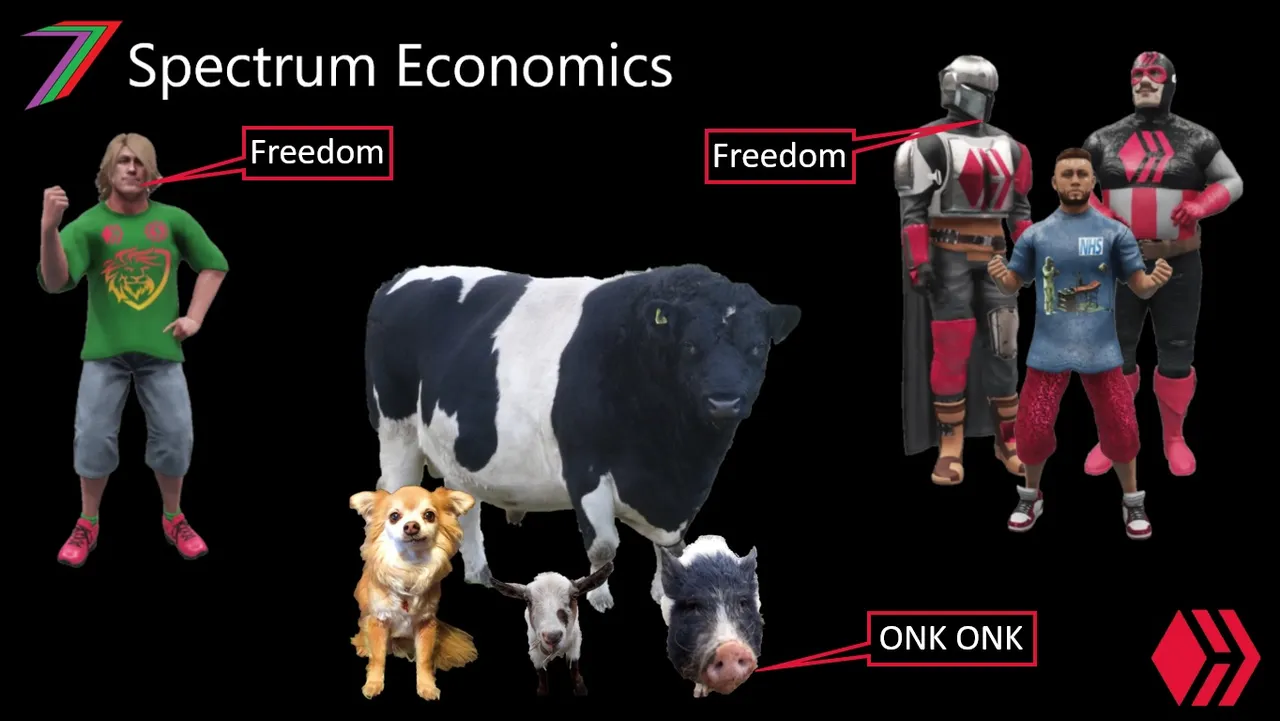
Our perceptions determine how we understand and how we respond to the world. To understand our perceptions we need to understand ourselves. Why do we believe the things we believe? What influences us to think and behave in certain ways? How do our actions impact the freedom of those around us and how do their actions impact us?
Freedom for Us, Them, and Everyone (Part 2)
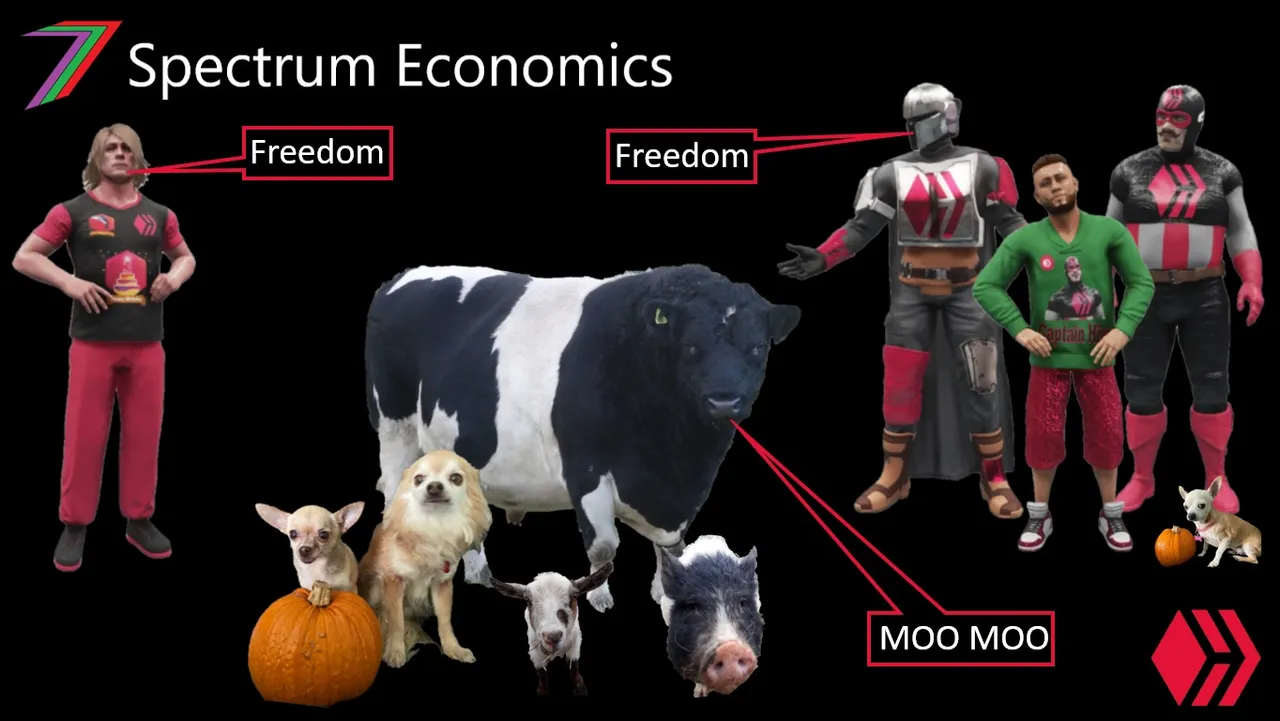
We should strive for freedom. Universal freedom would be an amazing feat to accomplish. Unfortunately, it is unlikely to ever be possible. This is because people can use their freedom to impinge on the freedom of others. In an ideal world, people would respect the freedom of others and utilise their freedom in a way that does not harm others. We cannot assume this will ever be guaranteed.
What do we want?
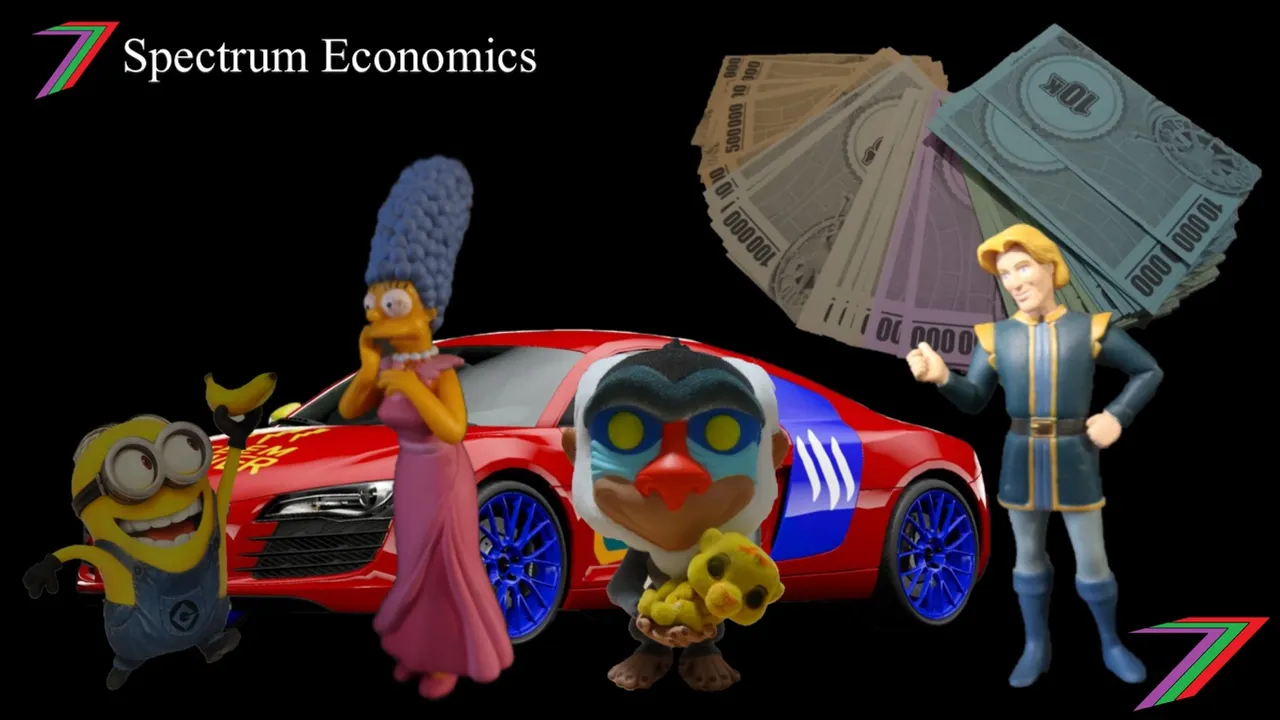
This post provides broad examples of what most people would consider desirable.
When Less is More
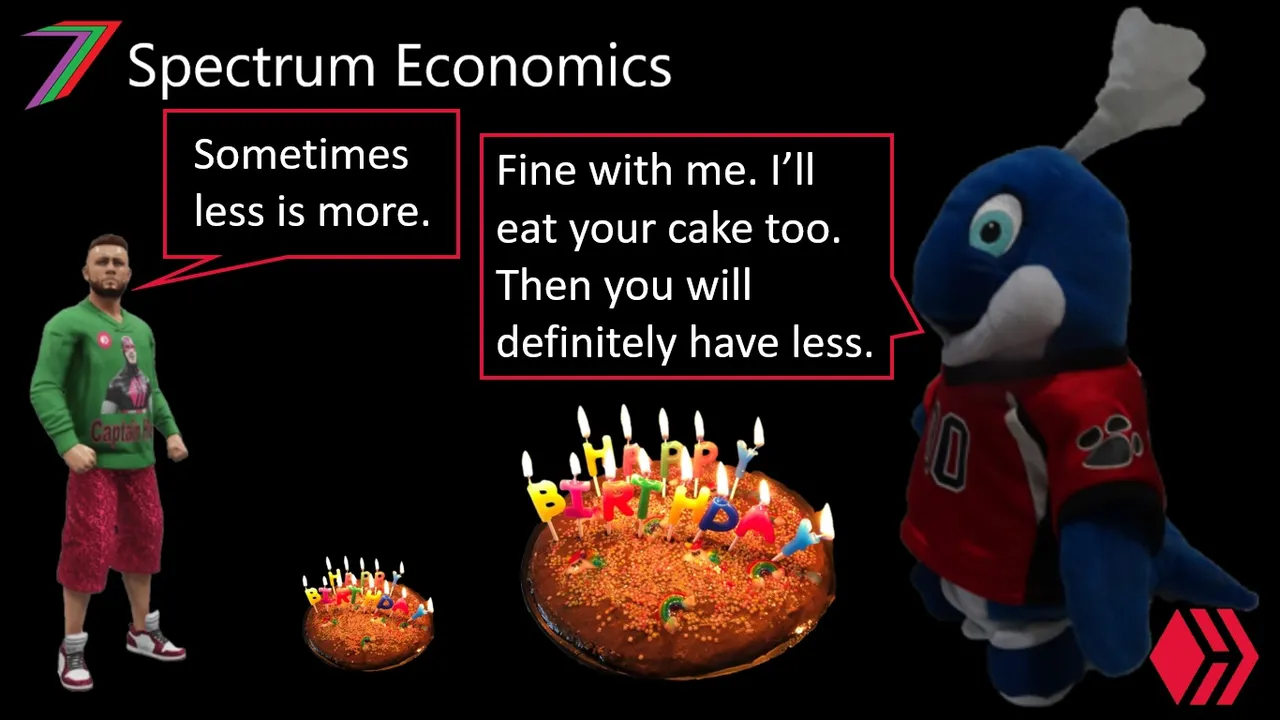
We live in a world full of paradoxes. Generosity is exploited by the ungenerous, freedom is used to take freedom, success is only appreciated when there is failure, happiness is only appreciated when there is unhappiness, and adding more destroys value. Paradoxes do not occur from the start. They occur when something becomes excessive. There is normally an optimal amount of everything.
A World of Tolerance
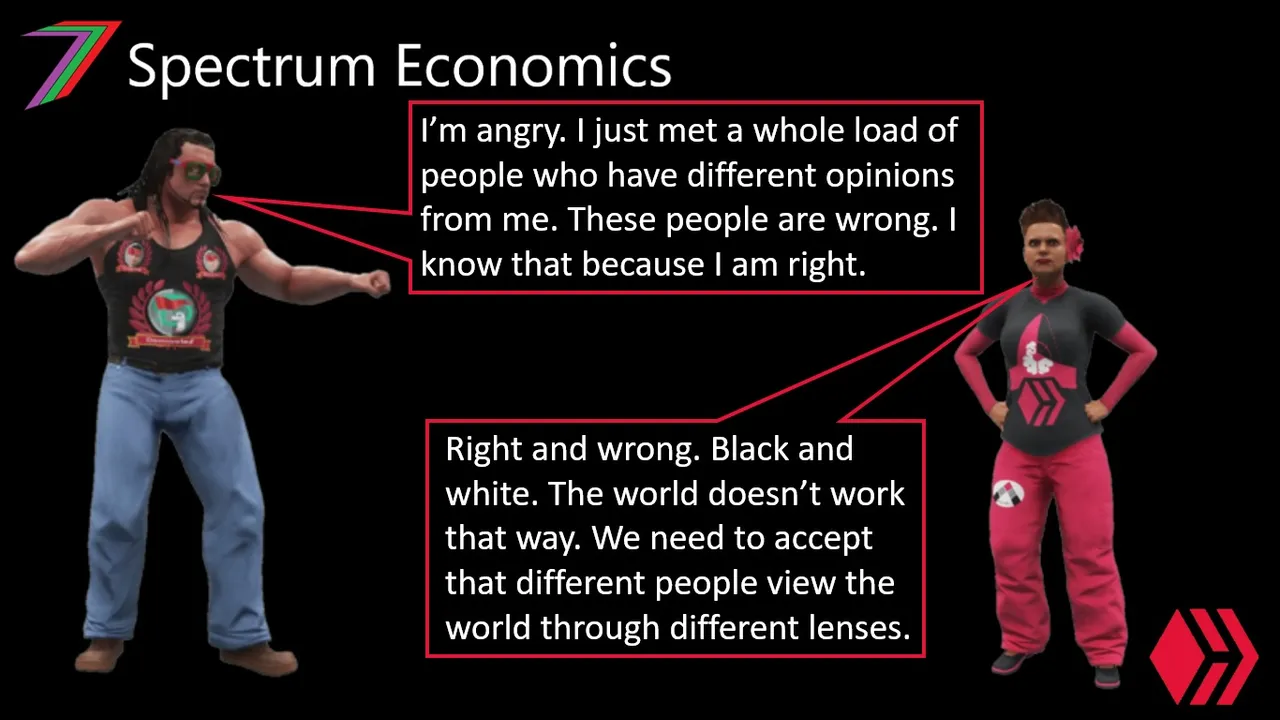
Everyone is different, everyone experiences the world differently, and everyone responds differently. We will never fully understand the way someone else perceives the world but we can at least attempt to understand elements of their perspective. We should attempt to be tolerant of other people’s behaviour and ideas. They are often just expressing themselves based on what they believe, which could be contrary to what we believe.
Reflecting on Past Decisions
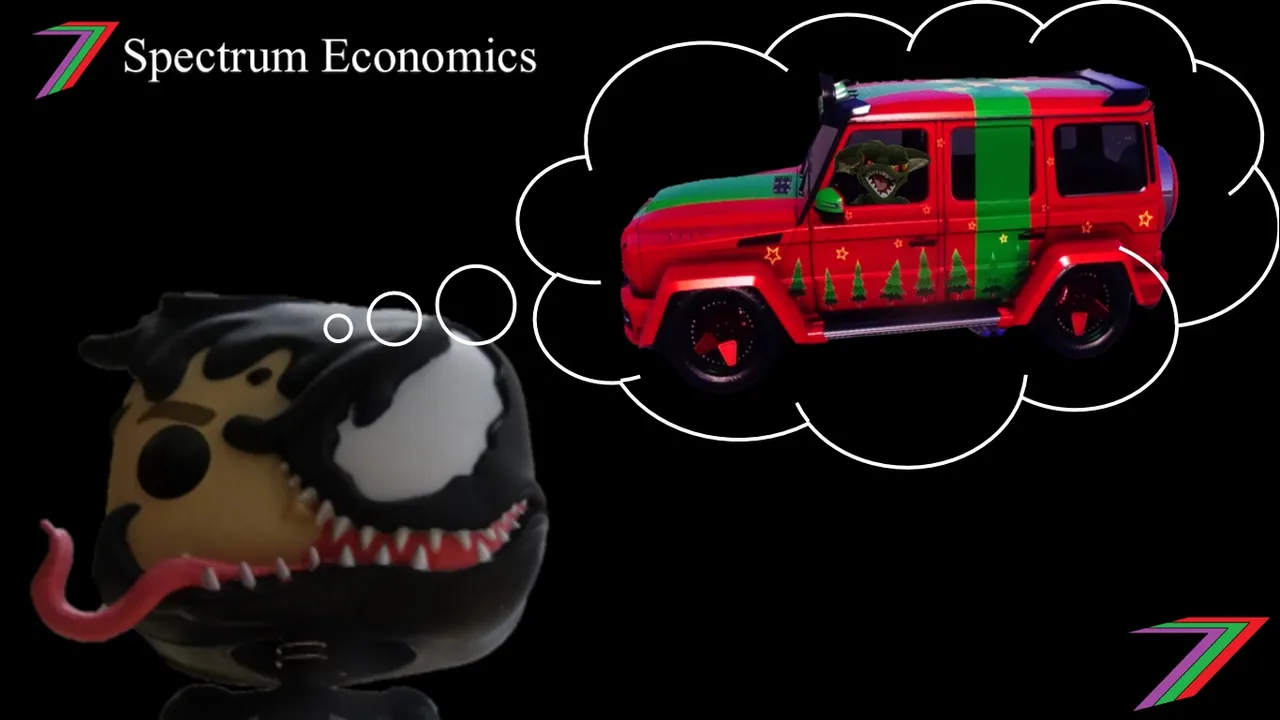
It is useful to reflect on past decisions. We can learn on a lot from previous decisions. The decisions that stand out the most are often the decisions that did not produce favourable outcomes. They are the decisions we often perceive as bad. Outcomes are not always the best indicator of the quality of a decision. This is because there are often many factors that affect how a decisions turns out. We could make several bad decisions but still arrive at a positive outcome because of certain circumstances.
Time to Play the Game
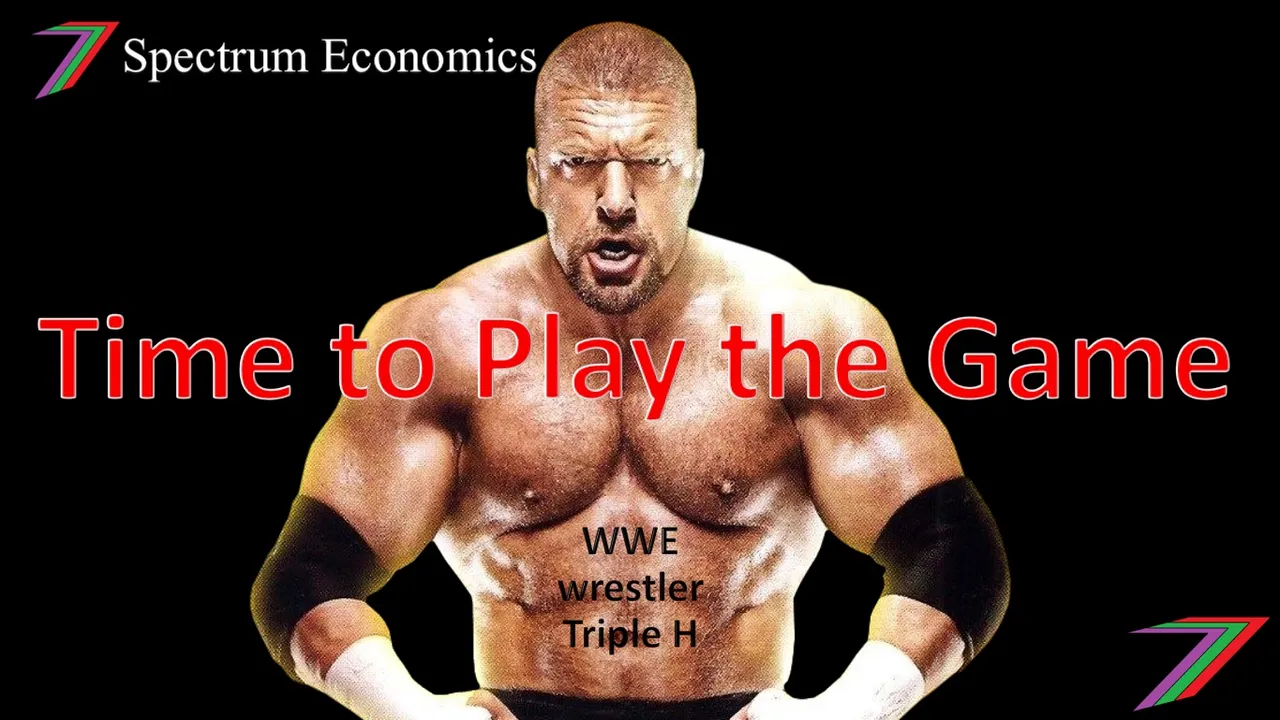
We live in a complex world. Many aspects of it is like playing a game. In this post, I discuss some of the strategies that we could use to make the most of our opportunities as well as get the most out of other people. Warning; slightly Machiavellian in nature.
Power, Money and Me Me Me
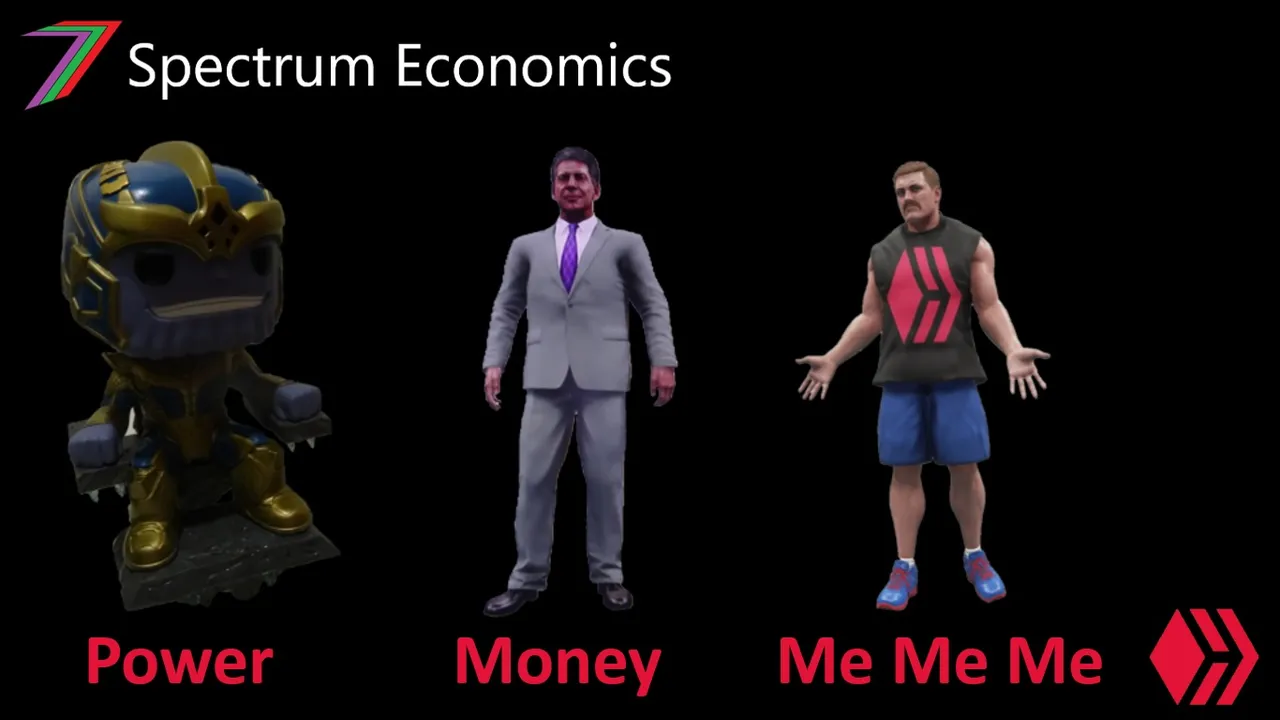
The post, Power, Money, and Me Me Me, explores human nature and rationality. It explores self-interest. It looks at how our pursuit of self-interest affects the people around us. It is the ultimate double-edged sword. Once we understand our own self-centred nature, we are better positioned to understand how the world operates and how it has become this way. The post also explores the relationship between wealth accumulation and power.
Changing Opinions (Part 1)
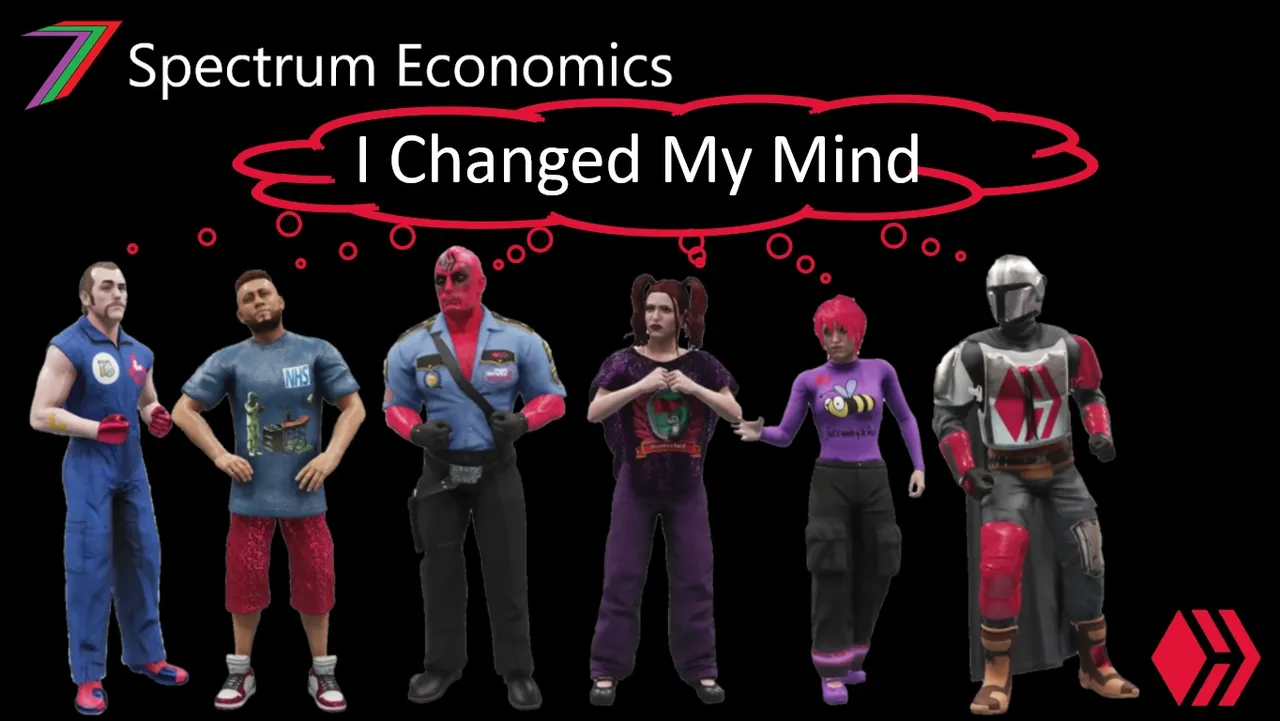
An important part of life is change. Over time we will be subject to pressure to change many aspects of our lives. These changes can be for better or worse. They can enhance our understanding and enable us to modify our behaviour in a positive way. They can also distort our perceptions and make us worse off. For good or bad, change is often difficult because it involves us moving away from the familiar. Even a good change may, initially, feel like a bad one. Hence, it is important to consider the possible affects a change might have in both the short and long run.
Centralisation vs. Decentralisation
Centralisation vs. Decentralisation
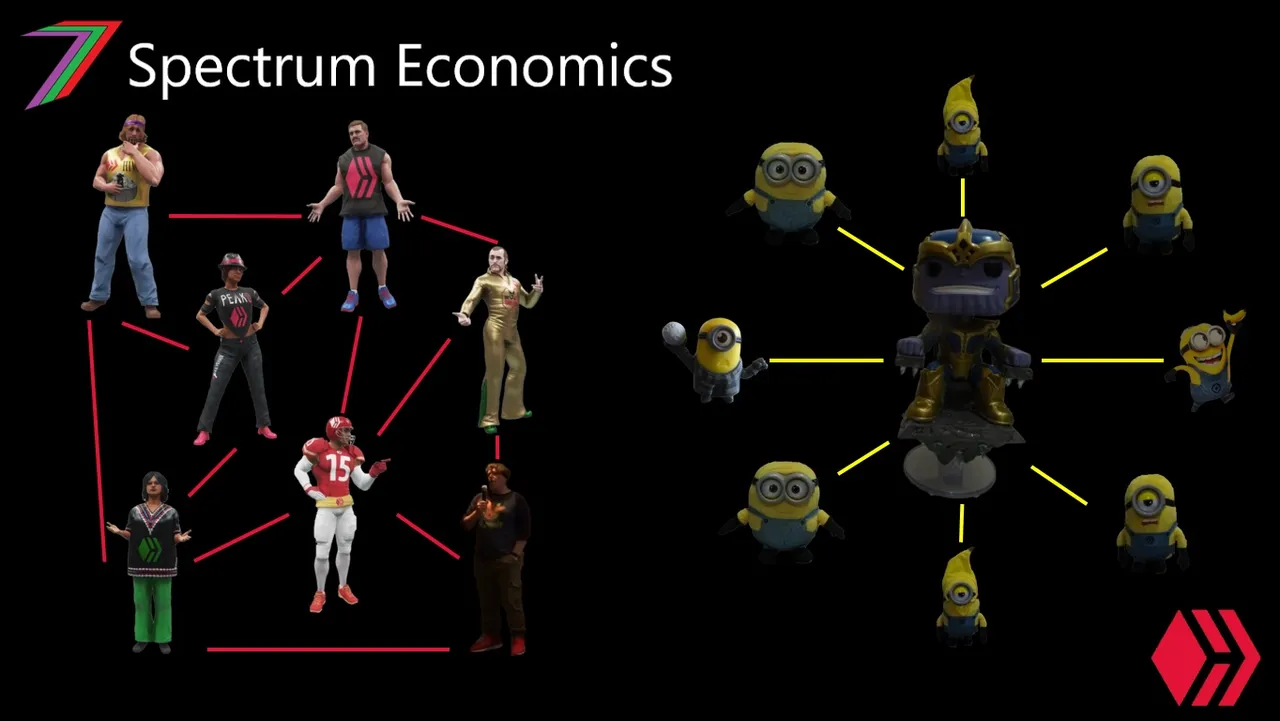
Determining the level of centralisation is not a straight forward task. There are many aspects to centralisation. These relate to the number of people involved in decision-making, level of consent given to decision-makers, transparency of the decision-making process. Extent of accountability of decision-makers, diversity of decision-makers, number of people affected by decisions, and the extent of influence third parties have on decisions and decision-makers.
Raise your hand if you live in a Democracy
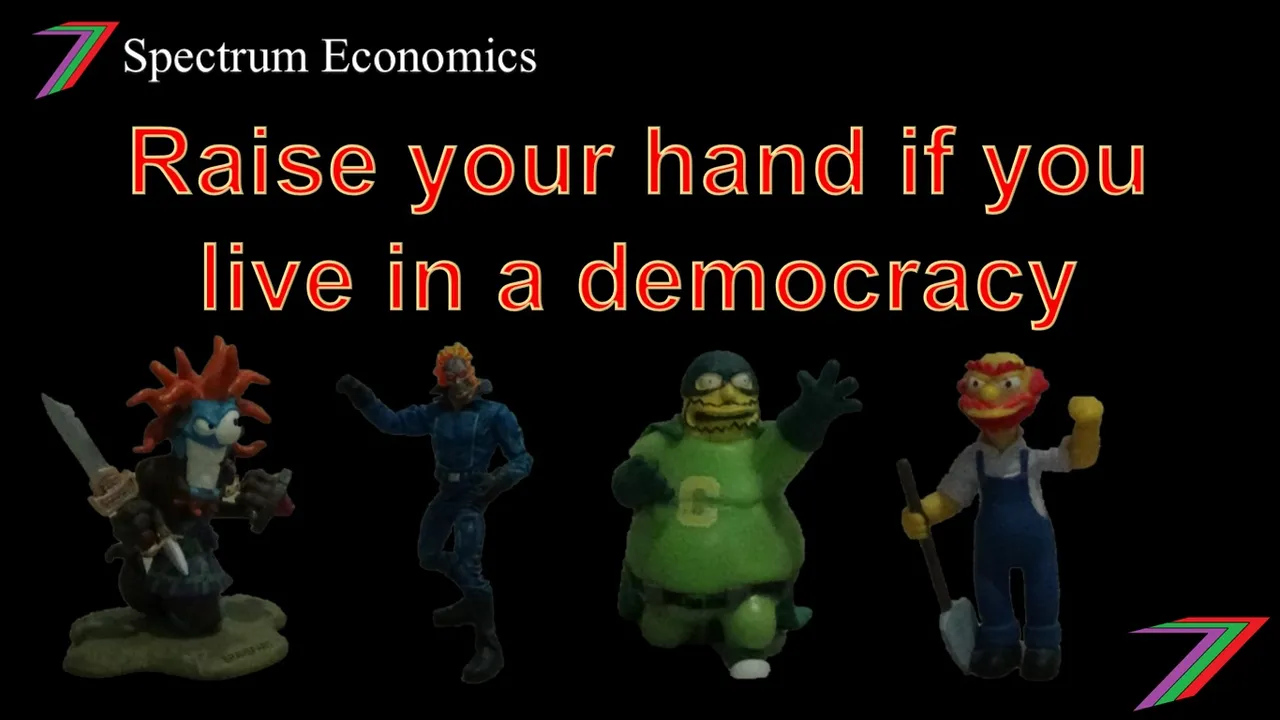
Do democracies actually exist? They do not appear to exist in any country on a national level. The posts sets out basic criteria that a democracy should meet. These criteria were: strong and unbiased media, many alternative opposition parties or representatives with a wide variety of perspectives, open and transparent decision-making, separation of powers (e.g. Independent Judiciary system), and frequent and open debate over all relevant issues.
Could democracy succeed if it was given a chance?
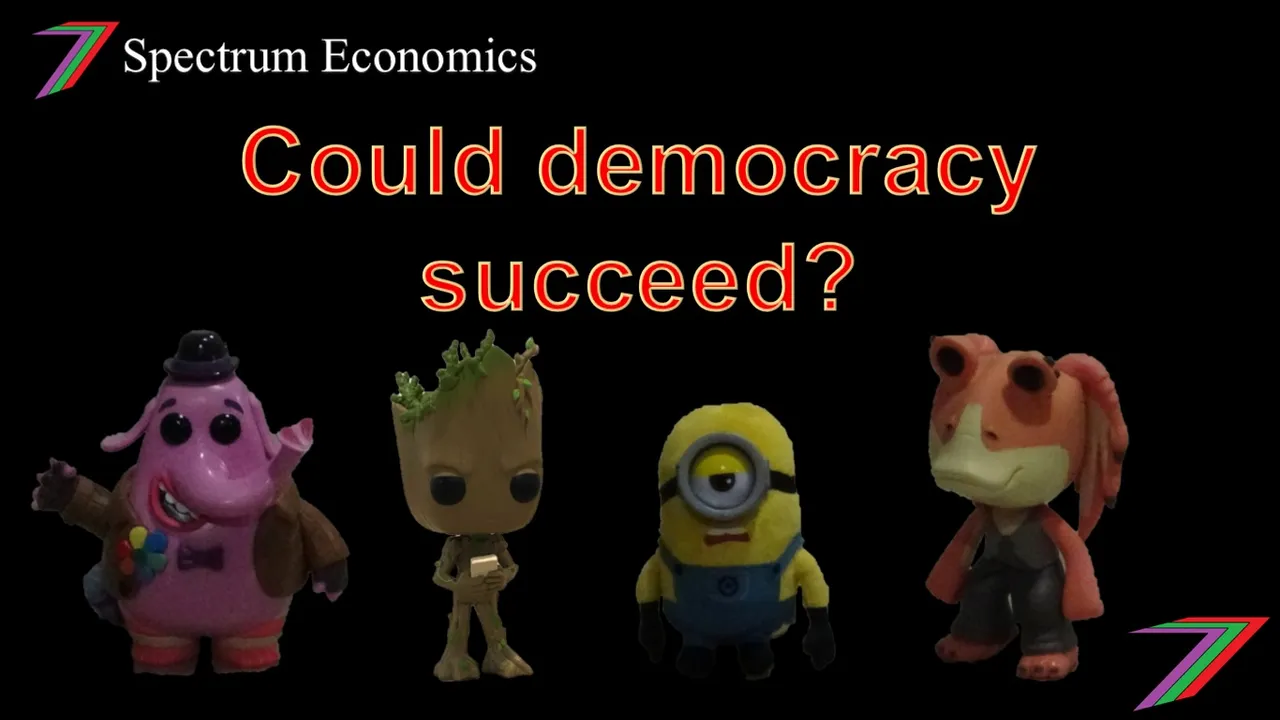
To a certain extent, the ideals that support democracy are positively correlated to decentralisation. Democracy does not exist on a large scale (e.g. National or even State level). It can and does exist in some smaller communities. This is because people are much closer to the decision-making process. Democracy cannot be fully applied on a large scale as people are too far removed from decisions. Full inclusion is too time consuming.
Leadership – Prevent, Solve, or Manage
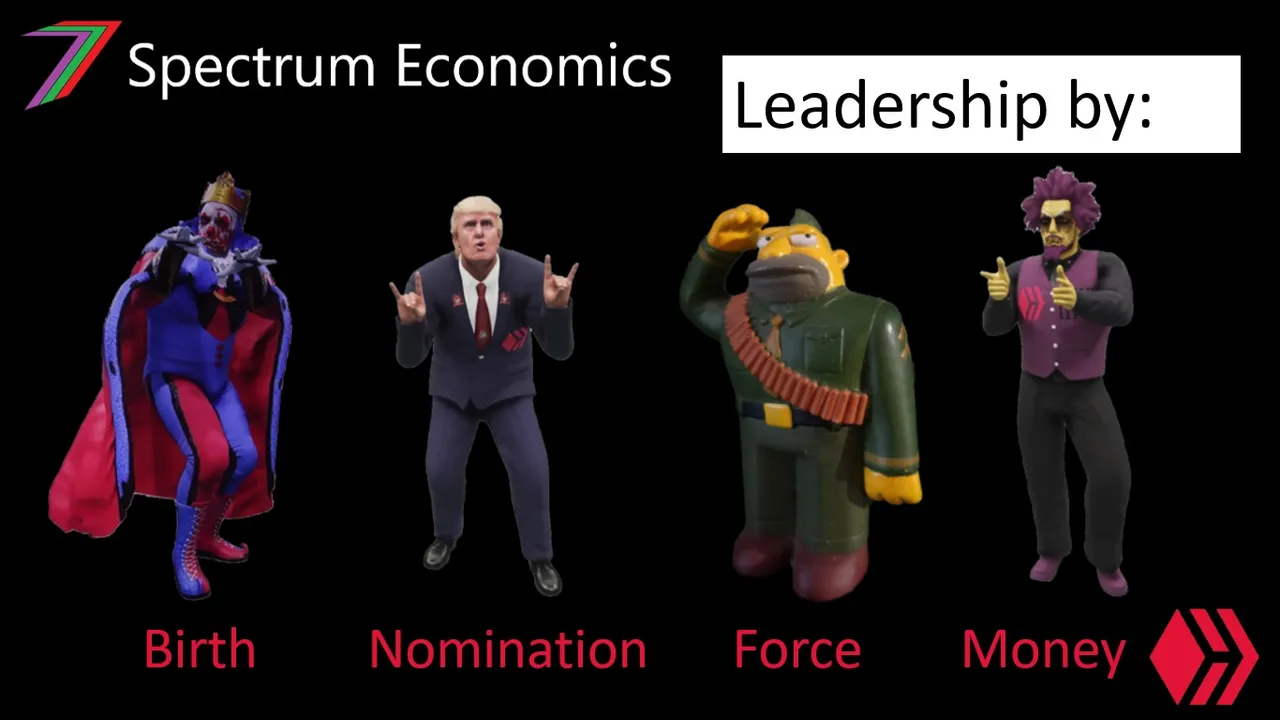
A fully decentralised world is unlikely to be possible and is also not completely desirable. The existence of some form of centralisation is inevitable. Therefore, leadership is also inevitable. There are many different ways a person can become a leader; some of these ways are more desirable than others. Ideally, leaders need to be determined through a system or process. This system should have criteria to ensure we obtain the best leaders and that these leaders are unable to abuse their authority.
Obedience
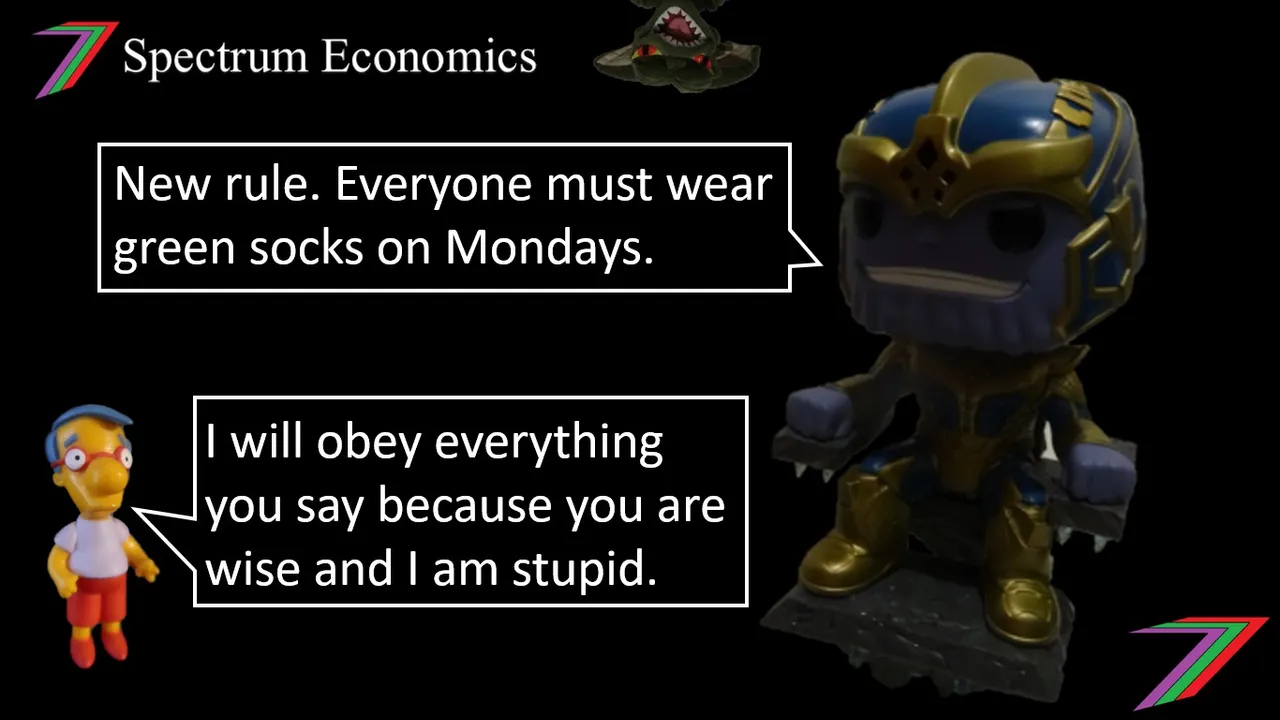
Highly centralised governance reduces freedom. The greatest tool any centralised Government has is obedience. If the people are obedient to any rule, they can be controlled much easier than if they question the rules put before them. There are many tools that can be used to encourage obedience. Obedience can be introduced at a very young age through schools and parents. It can be encouraged further through religion. Workplace hierarchies reward obedience by creating more opportunities for promotion and higher wages. Obedience becomes part of our culture; therefore, the obedient expect other people to obey them as they progress through life.
Is Socialism being used as a path to Fascism?
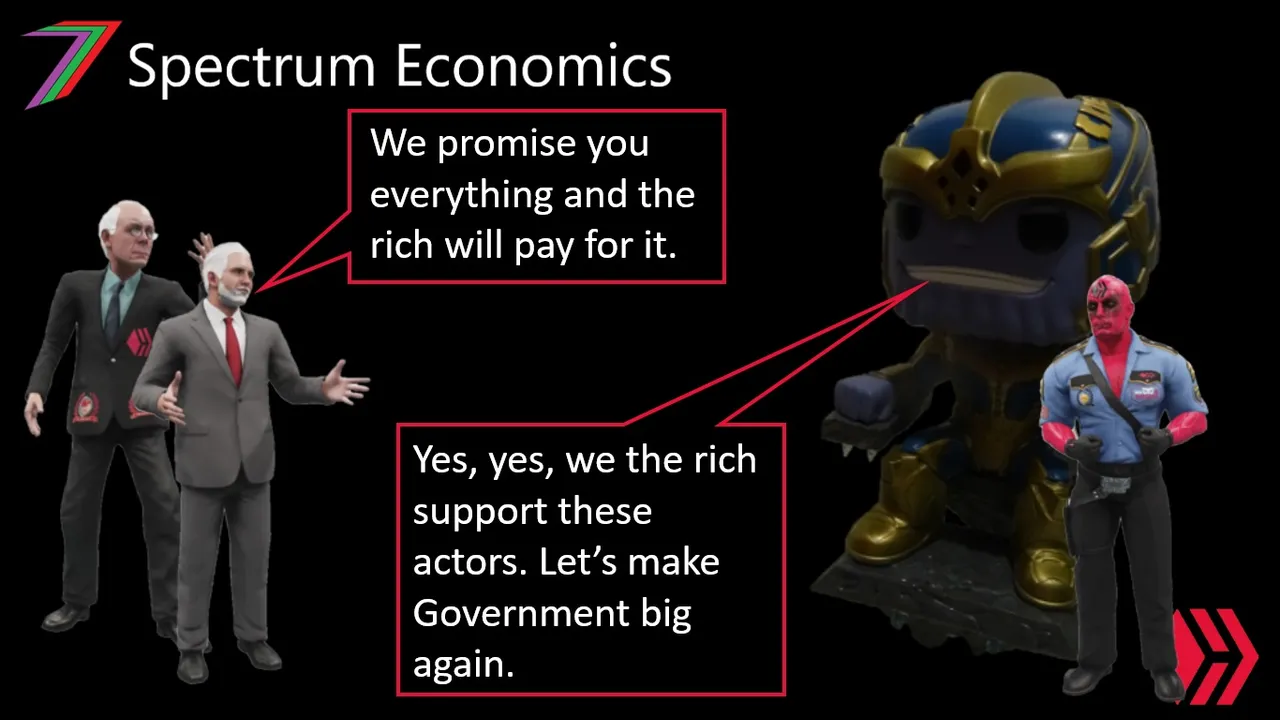
Socialist ideologies are easy to sell to the majority of people. In a world rife with massive inequalities, greater equality in all areas sounds very appealing to most people. The socialist approach to doing this is through redistribution of wealth. The easiest way to do that is through larger Governments. Large Governments are not solely a feature of socialism, they are a feature of any ideology where the leaders desire considerable control over the people. Once they have control over the people, it is very hard to take it back. What may have begun as socialist ideology can easily be transformed into fascist ideology; it has happened before.
Hive – How decentralised are we?
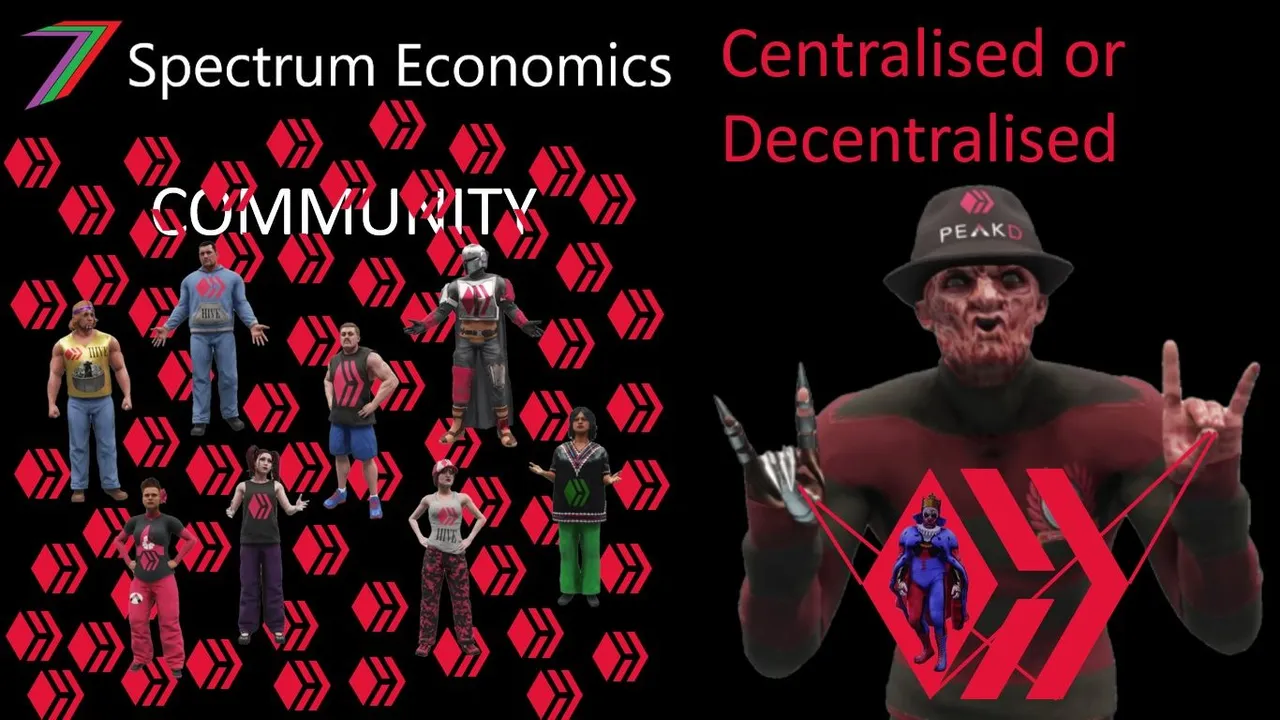
Hive is an example of reasonably decentralised blockchain. This post explores how decentralised Hive is when compared to the criteria set in the post Centralisation vs. Decentralisation.
Smart Cities: Our dream future or dystopian nightmare?
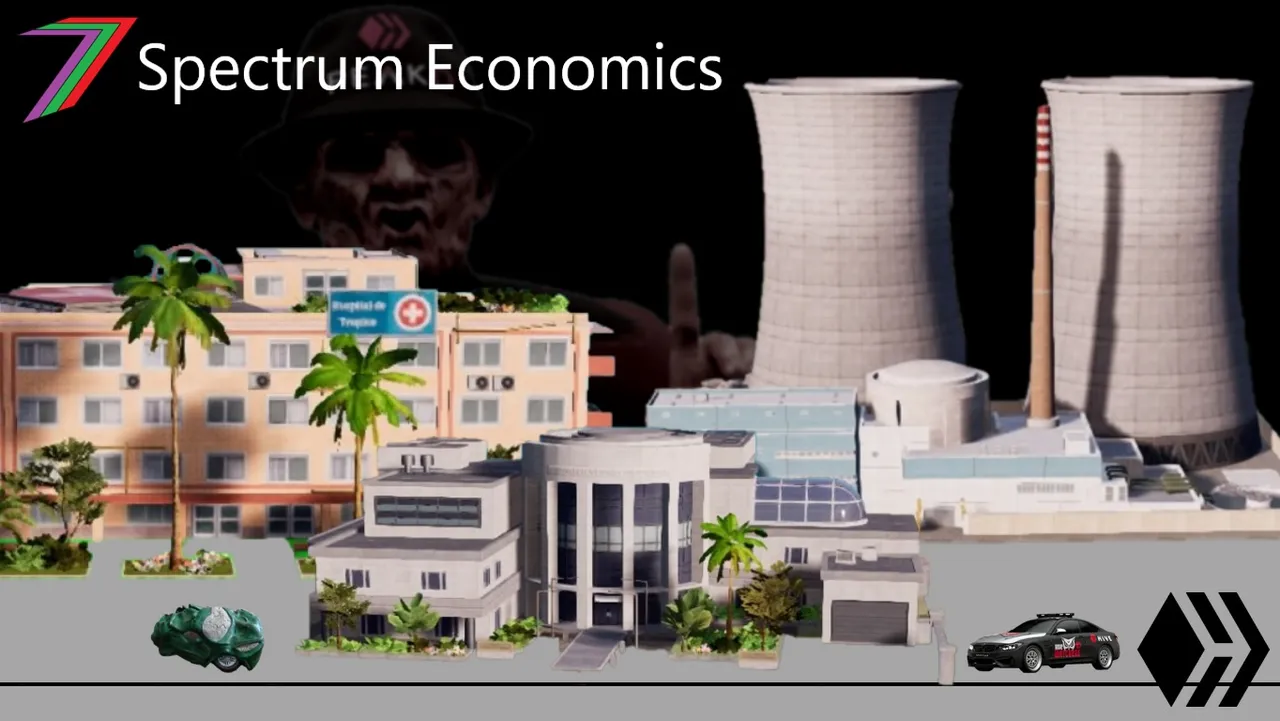
Centralisation of control is creeping further into our lives. Smart cities are the potential future of our urbanised areas. They are promoted as offering convenience and claimed to be environmentally friendly. Smart city concepts are being implemented around the world. Almost all smart city initiatives rely on centralised controlled. People’s activities are claimed to be monitored for purposes such as improving efficiency or increasing security. However, most smart city initiatives can be easily used as mechanisms of control, which could become very difficult to escape.
Super Bowl – Planned Entertainment for Dollars
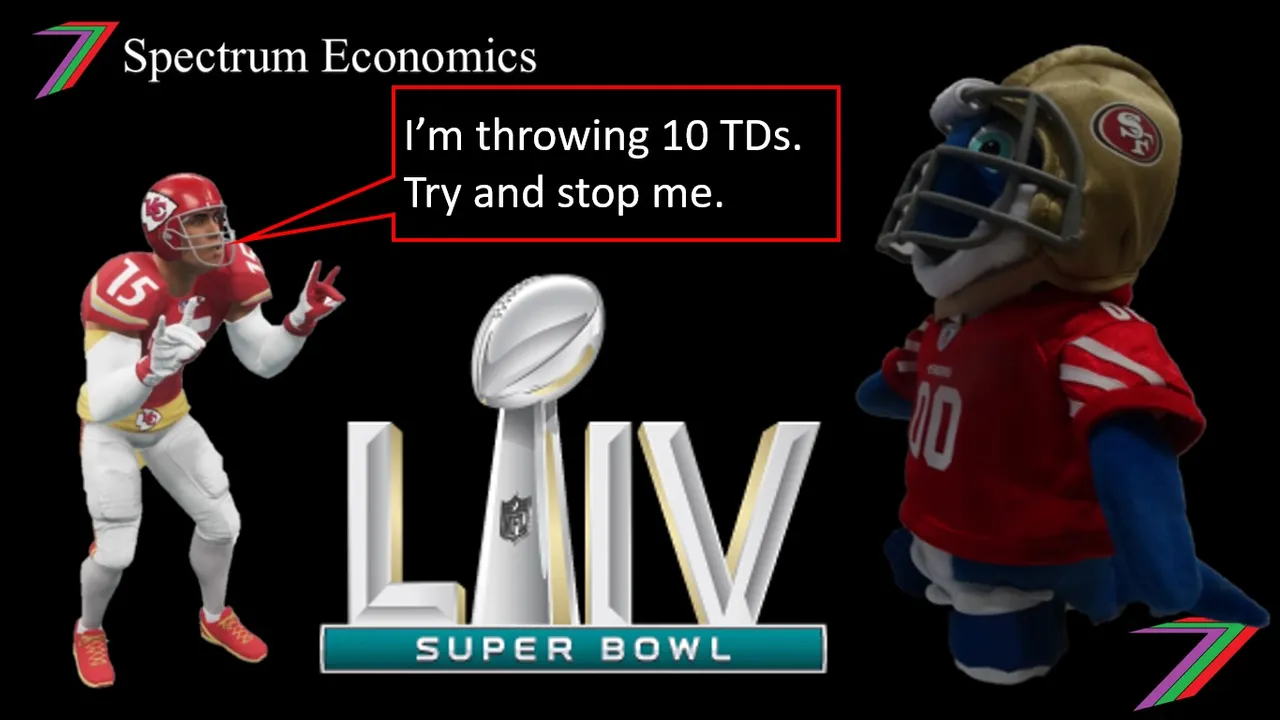
Sports is an area we would assume to be decentralised. Each player or team competes with each other to become the best. This is not exactly the case. Sports has become more about entertainment and gambling than competition. The NFL is a great example of how actual competition between teams is secondary to profiting as a whole from viewership and betting. The NFL has a centralised business model. Revenue is not substantially earned by the success of individual teams but from the overall product of football. The overall product is entertainment. Games need to be exciting and results somewhat unpredictable. Closer games are also good for the gambling industry as they become harder to predict.
The Establishment
The Establishment
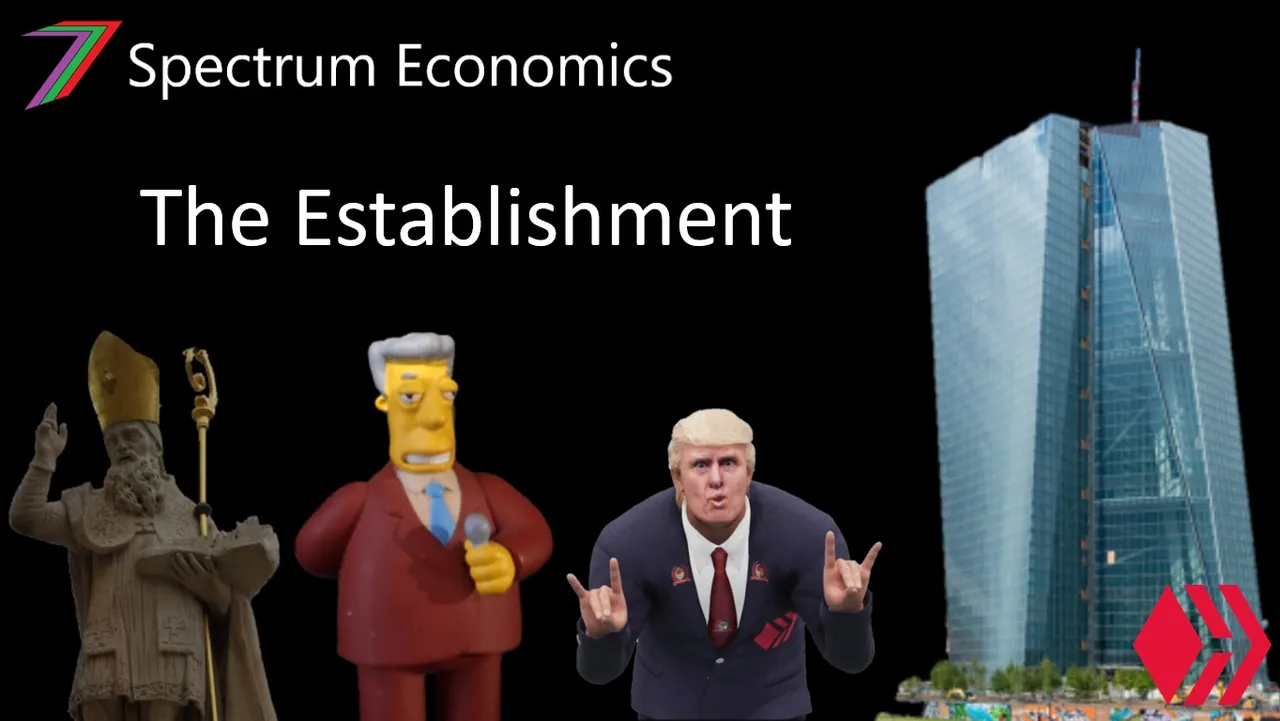
If countries are not run by democratic process nor by absolute dictators, how are they run? They have a system of interrelated and interdependent organisations. They work together to run countries and to a certain the world. I refer to them as the Establishment. I believe they fundamentally consist of Government, media, big business, banks, and religious institutions. They work together to control ideology, culture, governance, information, trade, resources, and monetary systems. On a global scale they work through think tanks and global organisations.
Are the ‘right-wing’ hijacking conspiracy theory to maintain the two party system?
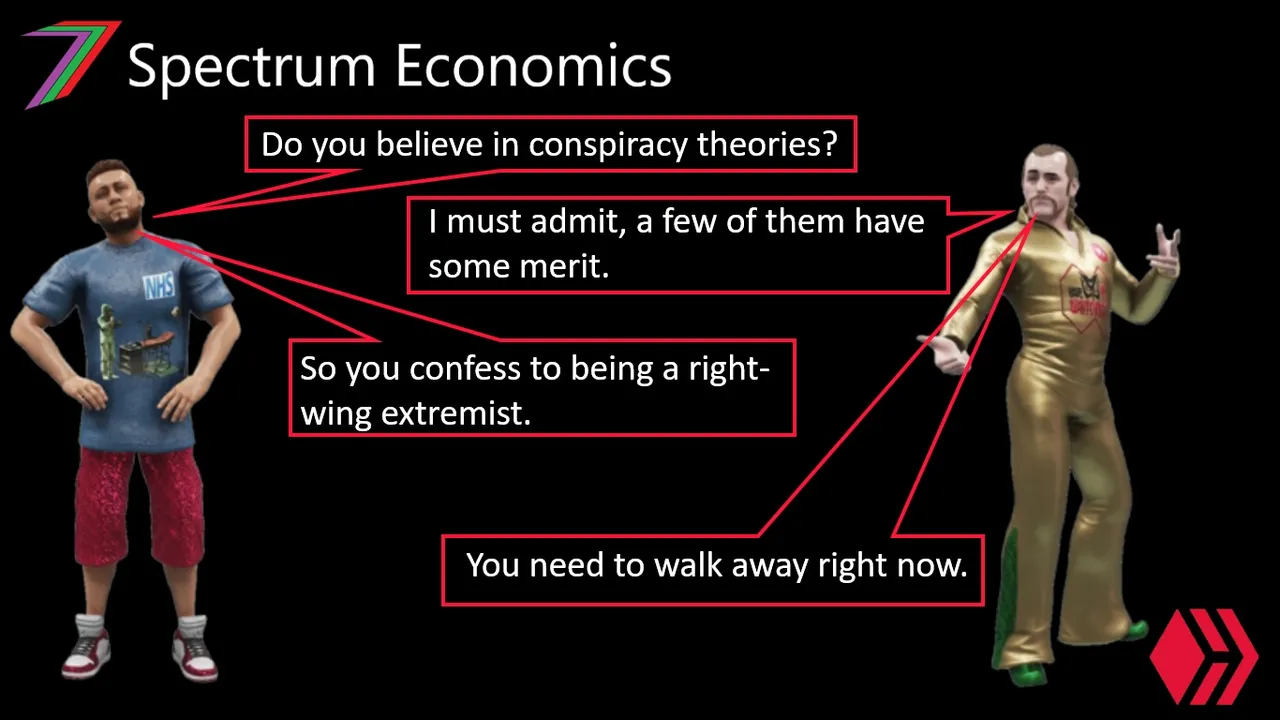
The self-proclaimed ‘left-wing’ political parties are actually Establishment parties. Therefore, the ‘right-wing’ parties are defaulting to appear anti-establishment. This transformation has taken place because of the lack of trust in the Establishment. There are potentially a sufficient number of people that oppose the Establishment that an anti-establishment party could pose a threat. However, there are no real anti-establishment parties. They are controlled opposition. They promote some popular conspiracy theories to create the impression they want to topple the Establishment. The Donald Trump presidency was the perfect example of this approach.
Tax: To pay or not to pay?
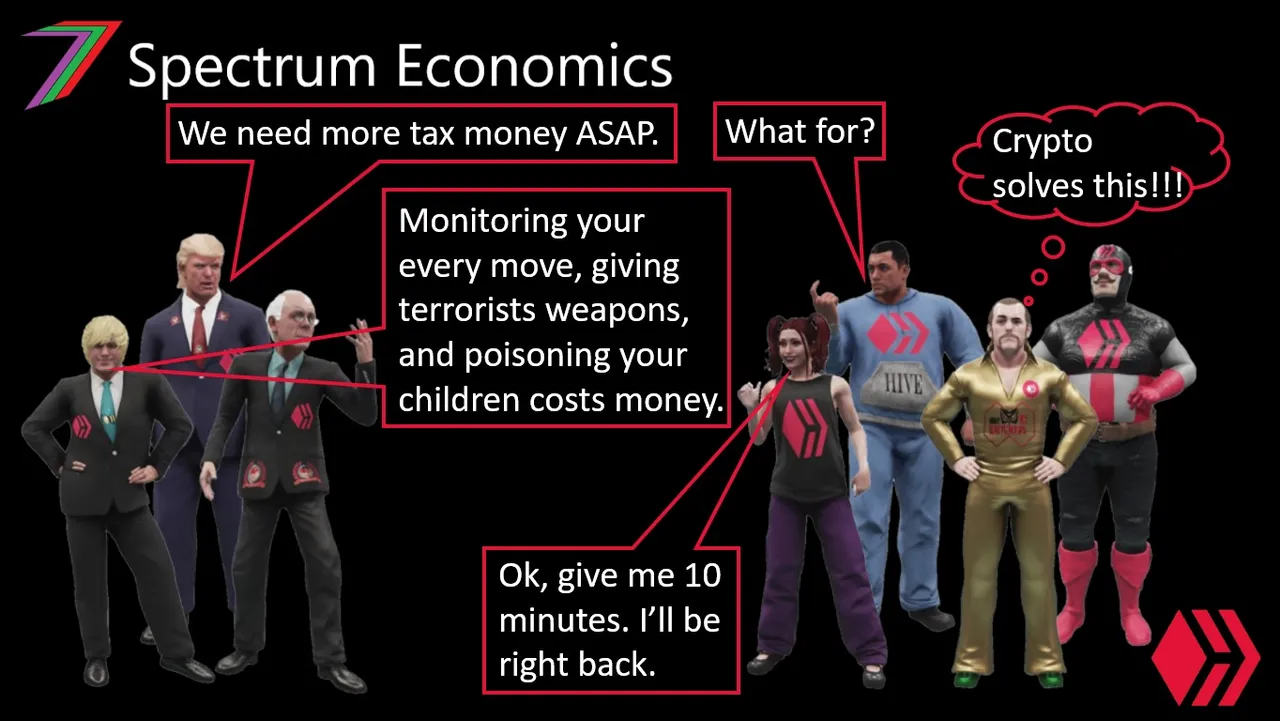
Governments are funded by tax revenue. Tax revenue is used to determine both consumption and production. Tax revenue is transferred to businesses, normally large, through contracts and/or subsidies. These businesses produce goods and services demanded by the Government on behalf of their taxpayers. Even if politicians genuinely intended to act in the best interests of the people, they lack the input to consistently do so. However, most of the time this is not the case. Governments have deliberately used taxpayer’s money against the people’s interests. Covid-19 and the war in Ukraine are current examples of the abuse of this money.
Dark Side of Economics #5 - Money and Power from War
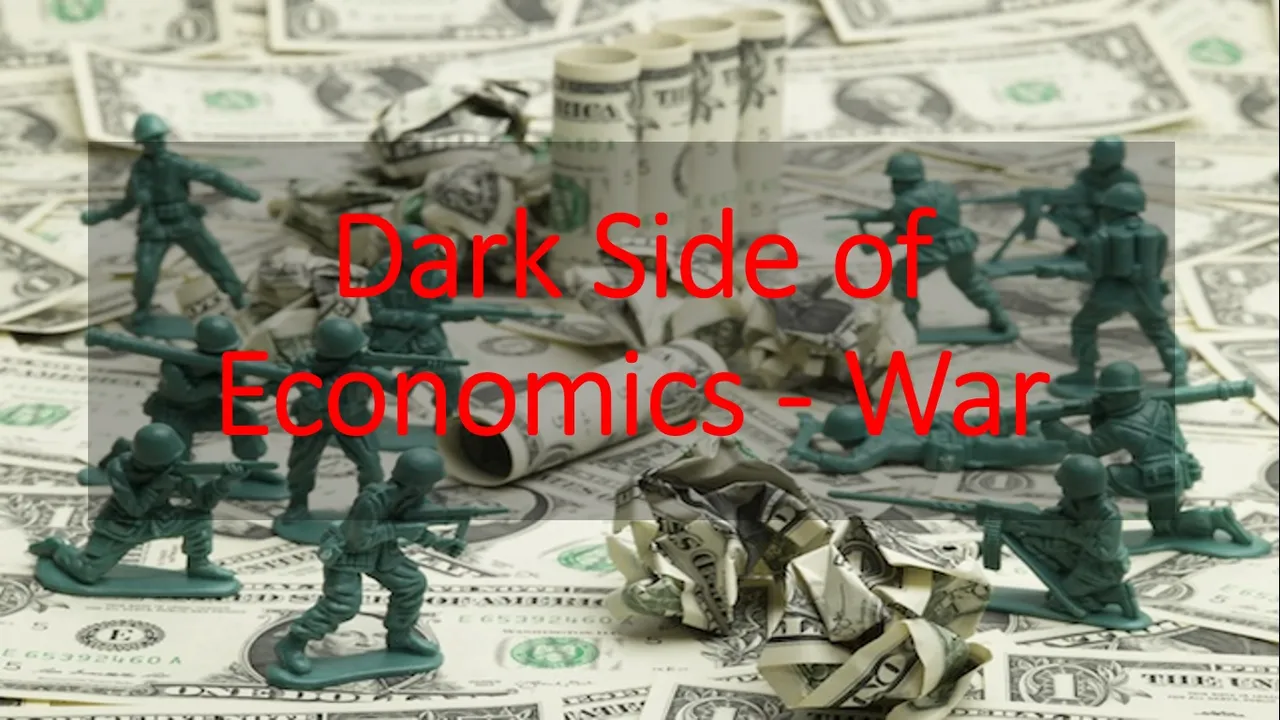
War or just the threat of war has been used as a fearmongering tactic to scare the masses into compliance. When war breaks out it is used to profit the rich while the regular people suffer or die.
Russia-Ukraine War 2022: Winners and Losers (Part One: Losers)
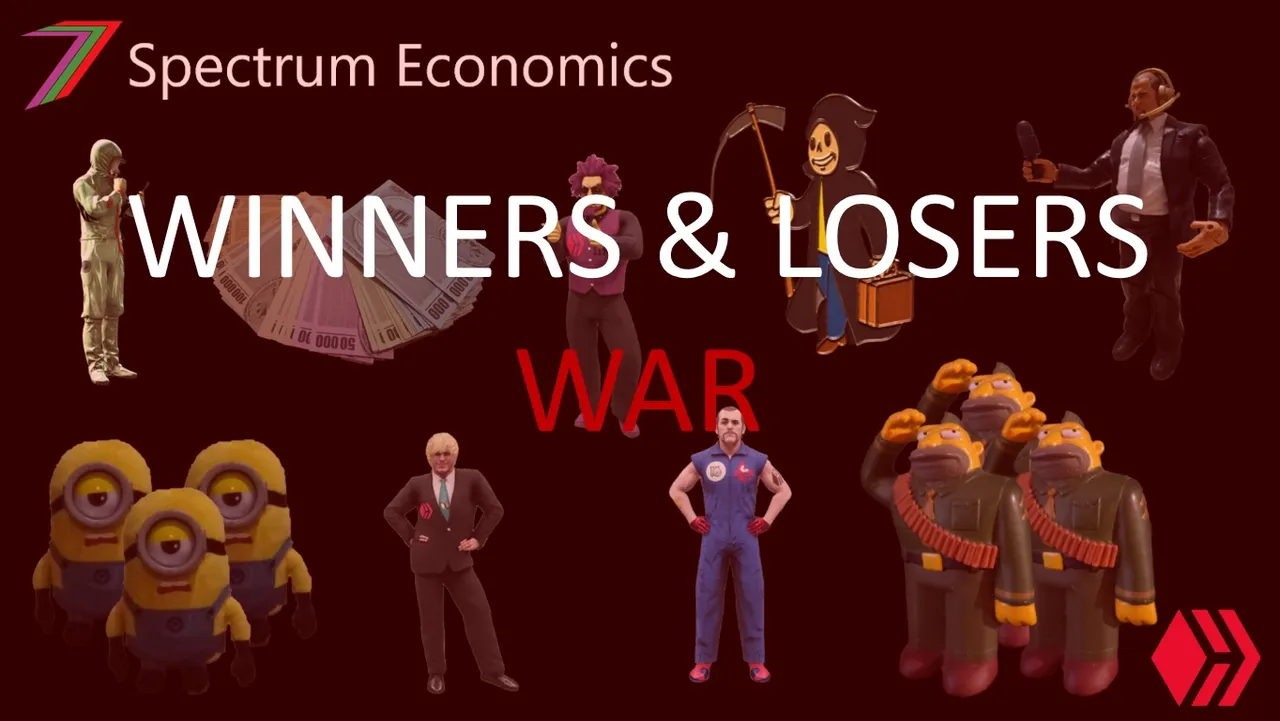
Despite the adages about war not having winners, we continue to have them and the number of wars are consistently increasing. This is because some groups of people benefit from war. Just not the people directly involved in them. The majority of people are made far worse off from war. This post investigates the likely losers in the context of the war in Ukraine.
Russia-Ukraine War 2022: Winners and Losers (Part Two: Winners)
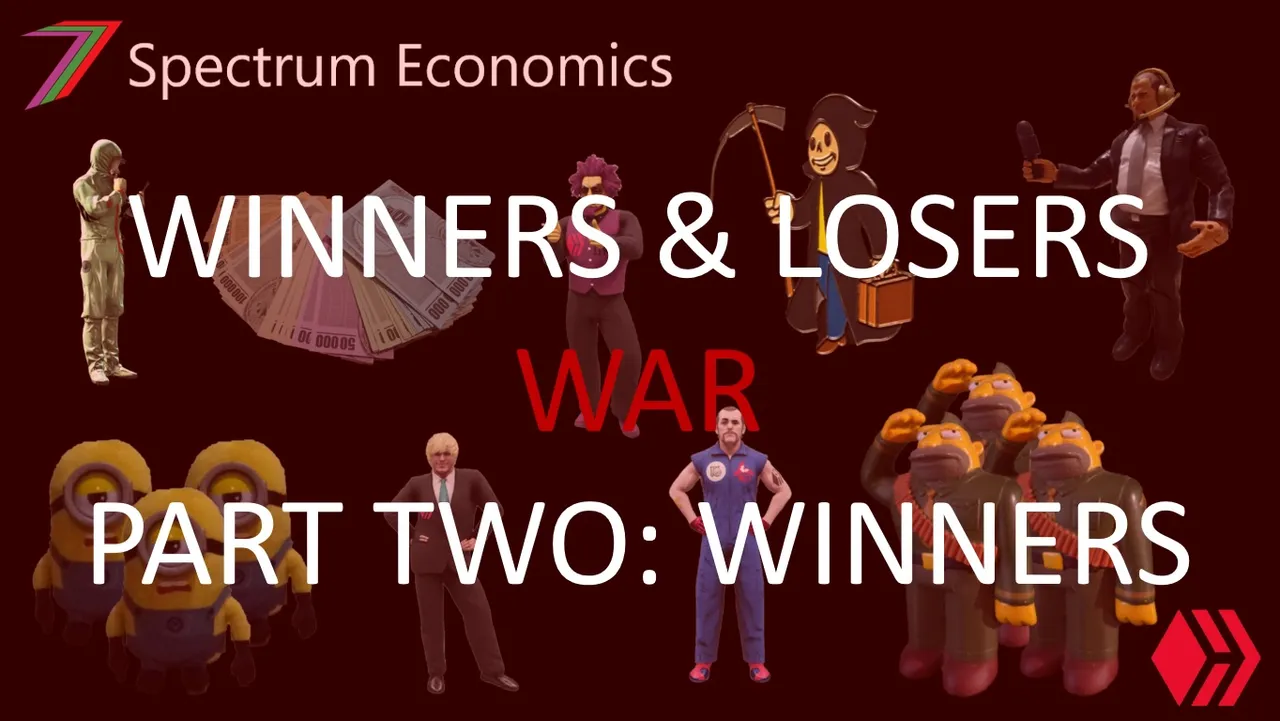
So who are the winners from war? When I say winners, I mean in the context of who benefits from the war and not winners in terms of military victory. The winners vary from war-to-war but there are a few groups of people, businesses and organisations that consistently benefit from war. These include banks, the military industrial complex, Governments of intervening countries, and business that benefit from price hikes due to war related supply shocks. This post investigates the likely winners in the context of the war in Ukraine.
The Masters of Production
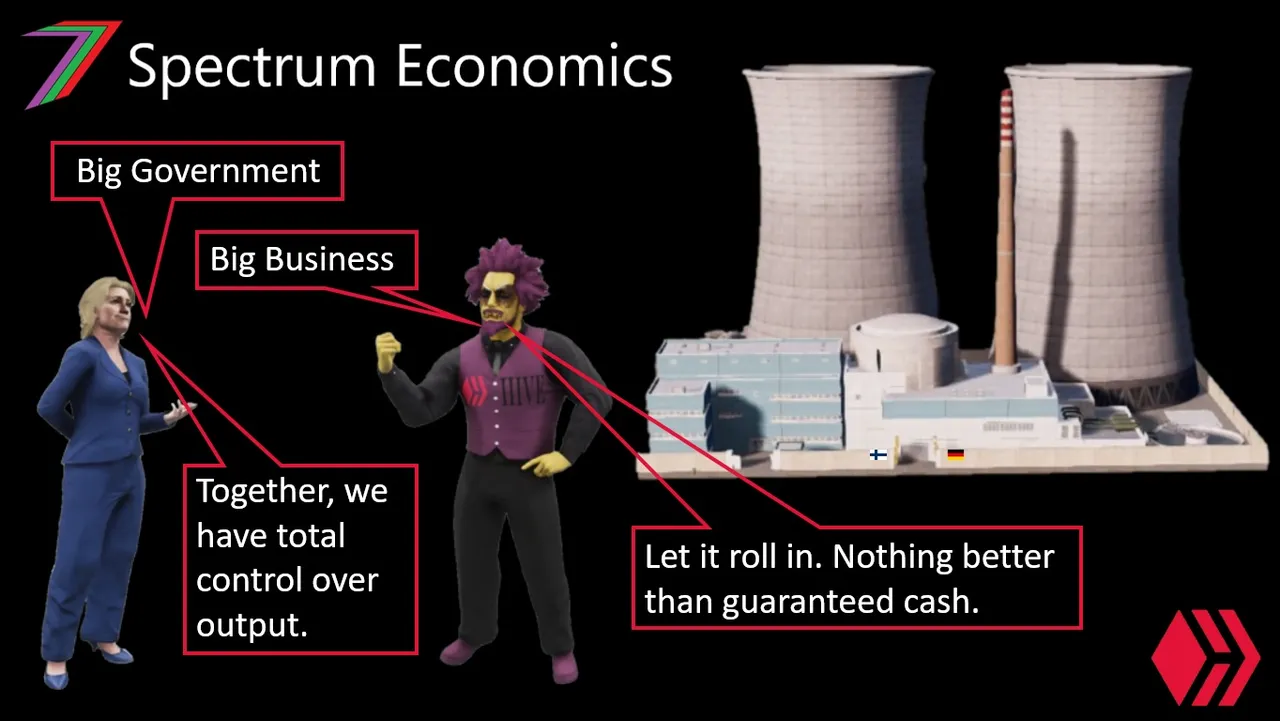
Who controls production? In a broad sense it is either the Government or the private sector. In reality, it is little more complicated. In an ideal world, the Government would represent the people and the private sector would be the people themselves acting through the markets. In the real world, the Government represent their own interests and the interests of those enabling them to stay in power and the private sector is dominated by a few large businesses controlled by a few people representing themselves. Governments are growing bigger but that does not mean the private sector is becoming smaller. Most large Governments outsource projects or buy directly from the private sector. Both groups tend to benefit from this arrangement (e.g. more power for the Government and higher profit and less competition for Big Business). The post looks at the size of Governments and how they spend the taxpayers’ money. The post also compares the dominance of Big Business for a large sample of countries around the world.
The Old Gods and the New
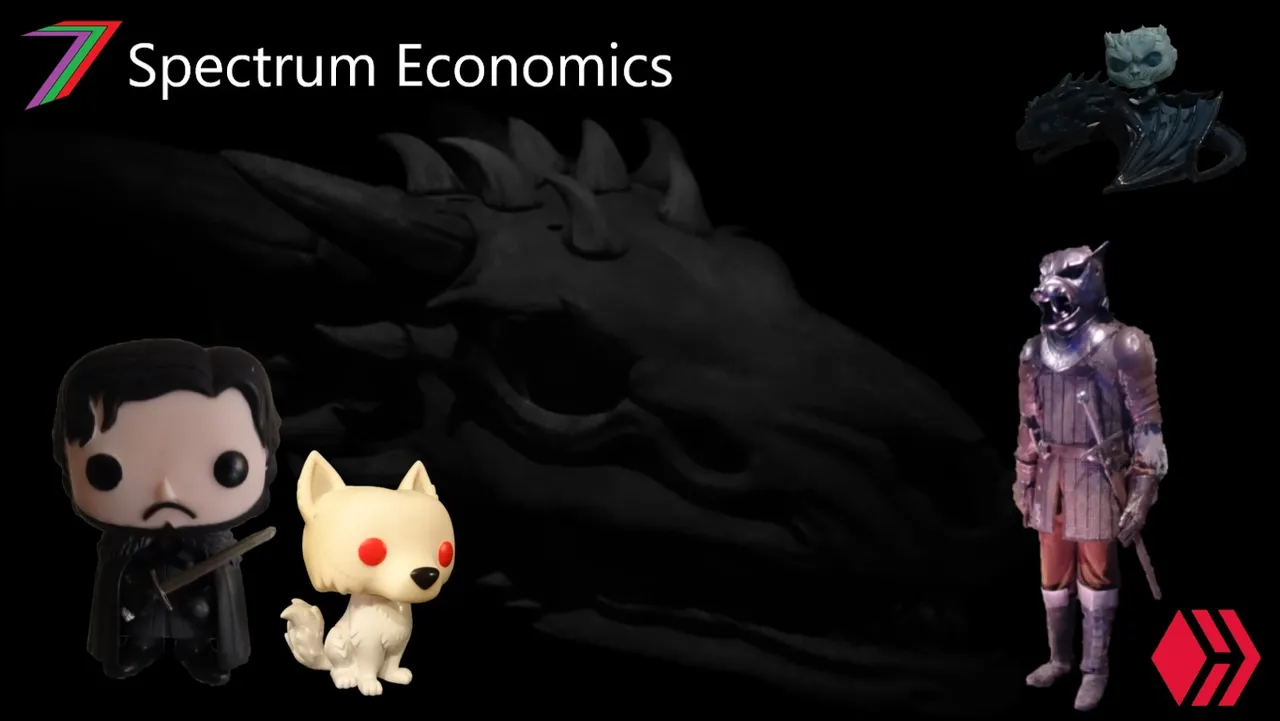
For billions of people around the world, religion is used to influence and in some cases dictate ideology and culture. Religion has been used as a powerful control mechanism for centuries. For most western countries, religion has lost its dominance in controlling people. People have moved away from religion. However, many of the migrants to western countries who are from non-western countries follow their religion quite closely. Their populations are growing faster because of both migration and high birth rates.
The Power to Own
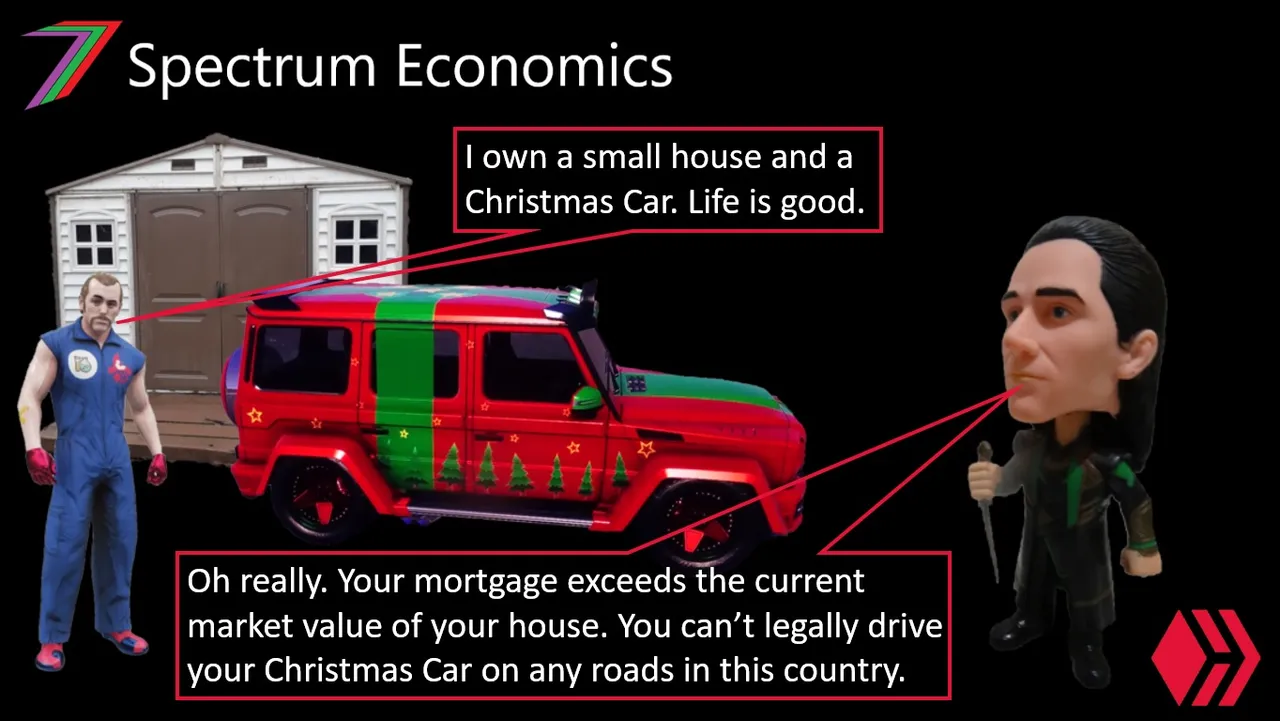
What do we really own? We may think we own our property, our personal belongings, and our money. In reality, most of us do not own as much as we believe we do. Ownership is made up of two important components; these are possession and control. If we own something, we possess it or have easy access to it. If we own something, we can use it as we please and whenever we want. When we apply these two concepts to what we consider our own property, we are likely to find on many occasions that we are lacking one and sometimes even both. The post considers ownership of property, money, more valuable possessions, and even ourselves.
Political Systems
Political Systems and Freedom
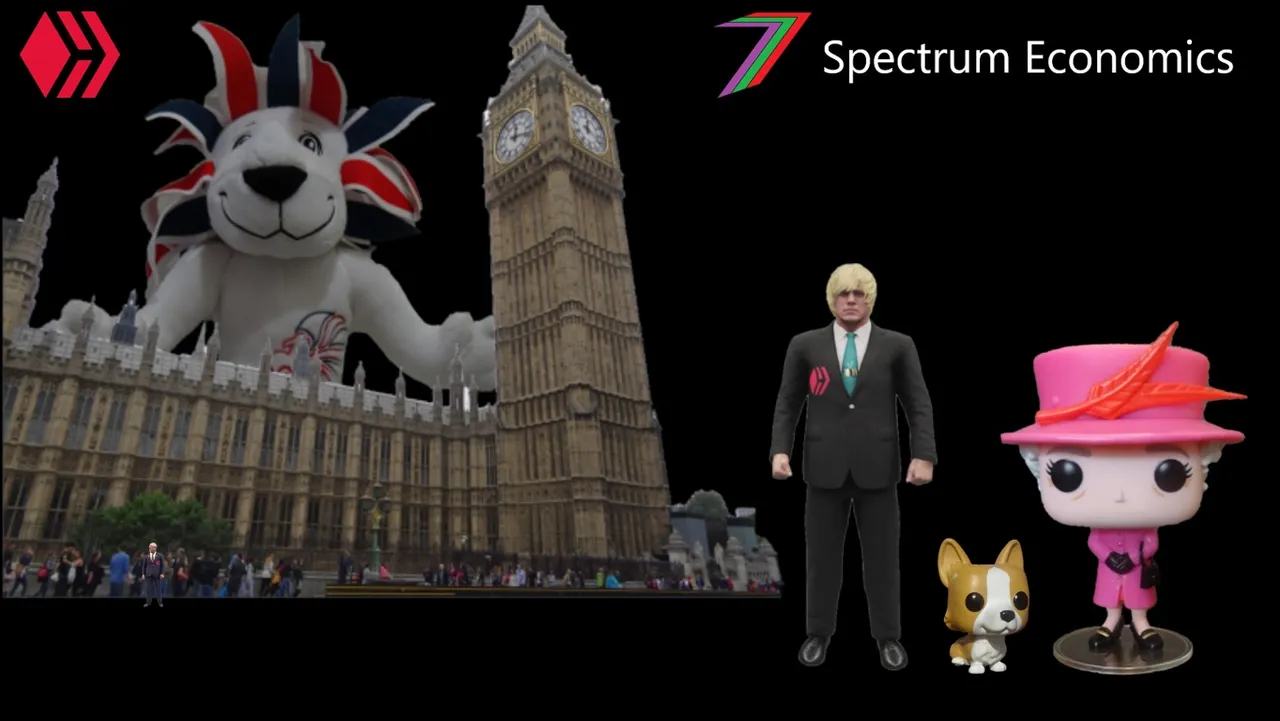
There are many different of types of political systems. They vary in terms of how they function and how they are formed. Some are direct dictatorships where power lies in the hands of the few or just one person. Others have a more sophisticated power structure that involves more people where positions are not permanent (i.e. they rely on elections to determine positions of power). In the West, representative democracies are promoted as the beacon of freedom. In reality, they offer very little freedom. Political parties are intended to create the illusion of choice. They do so by disagreeing with each other on a few selected topics.
The Two-Party Political System – The dictatorship we didn’t know we had
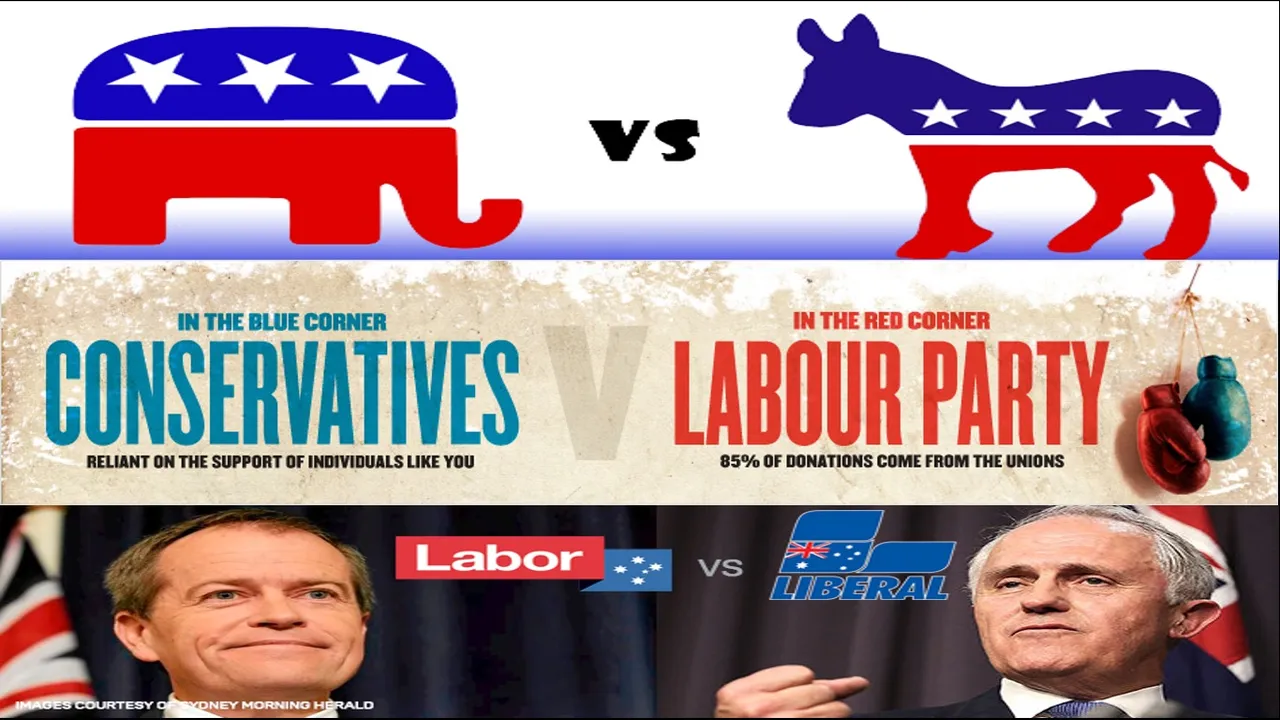
The two-party political systems of the western countries such as the UK, Australia, and USA only create the illusion of democracy. The post describes how the two-party political systems are maintained in these three countries. They utilise the voting systems, the media, access to debates, and availability of funding.
Exploring the Political Spectrum (Octagon Model)
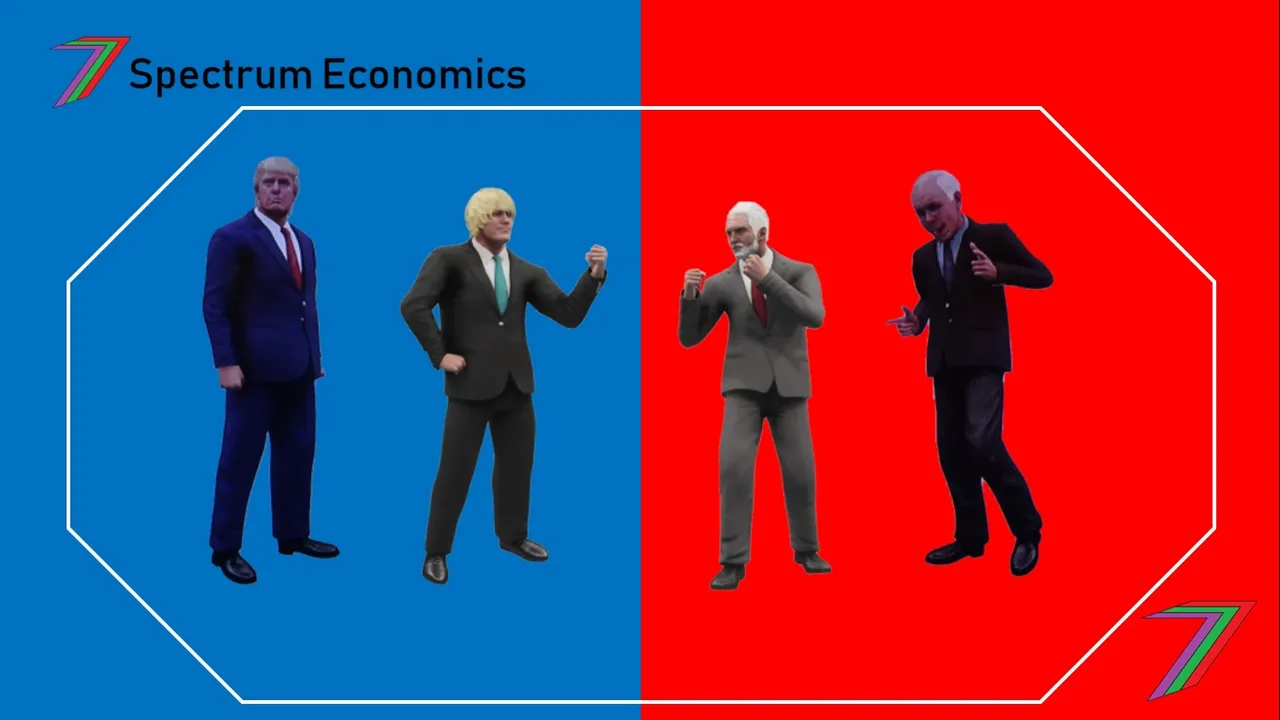
The political spectrum is artificially portrayed along a one dimensional spectrum of Left to Right. Therefore, people’s political views are assumed to fall somewhere along this one dimensional spectrum. The political parties and media have been allowed to define what is meant by Left and Right political views. These views have changed considerably over time. It is just assumed people’s views will just continue to align with whatever their preferred party promotes. To gain a better understanding of our political views we need to break them down into more definable areas. For example, Individualism vs. Collectivism, Globalism vs. Nationalism, and Order vs. Freedom. The post explains how these can displayed in an Octagon Model.
A Different Left-Right Paradigm

Politics has been traditionally divided between ‘Left-wing’ and ‘Right-wing’ ideology. The left supported working class people. They believed the working class majority should be the voice of the country and not the elites; there were anti-establishment. They aimed to reduce inequality through the redistribution of income and wealth. The right supported economic growth, freedom, traditional values, and minimal intervention. The left have abandoned the idea of being the voice of the many. They now pursue authoritarianism through larger Government while also supporting the richest and biggest businesses. They now support the direct implementation of Establishment agendas. The right have become the representatives of the anti-establishment. However, they are not truly anti-establishment.
Democracy and Economics (Part 2) - Major Debates
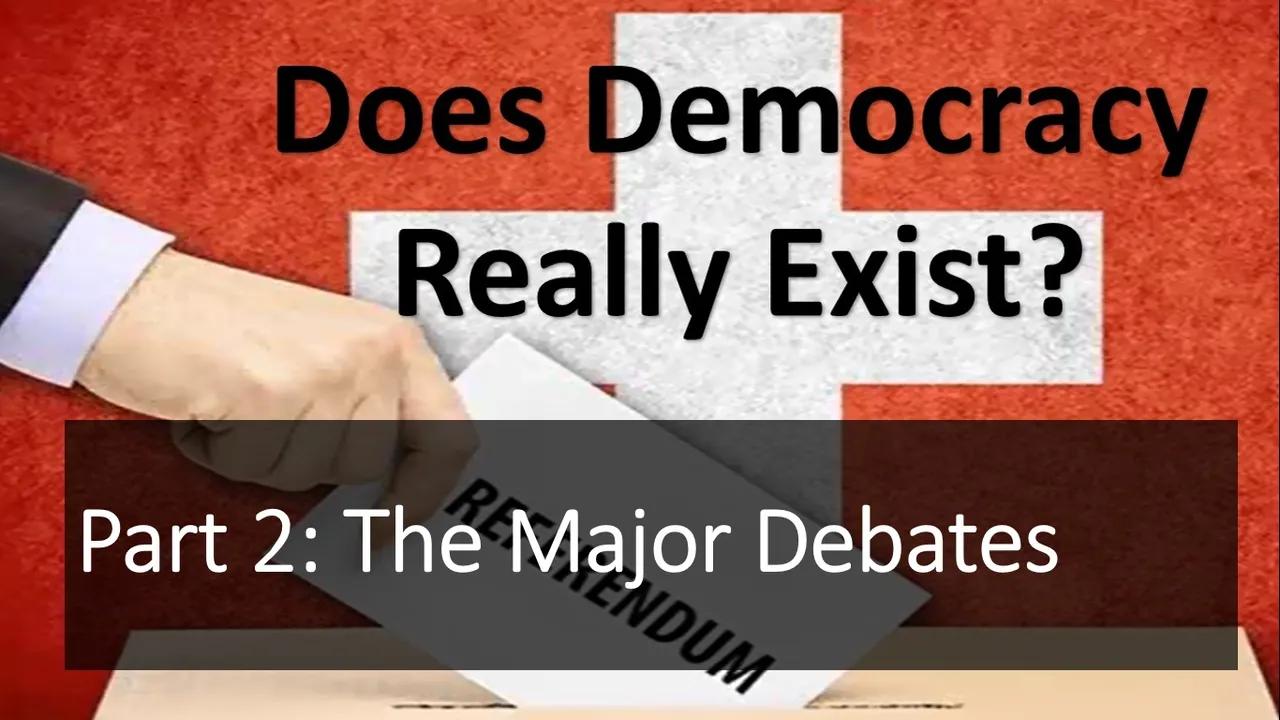
Political parties frequently debate various issues and agendas in parliament. However, the scope of these issues are limited. The post lists nine key areas that receive little to no attention in political debates.
Democracy and Economics (Part 3) - Areas Rarely Discussed or Debated
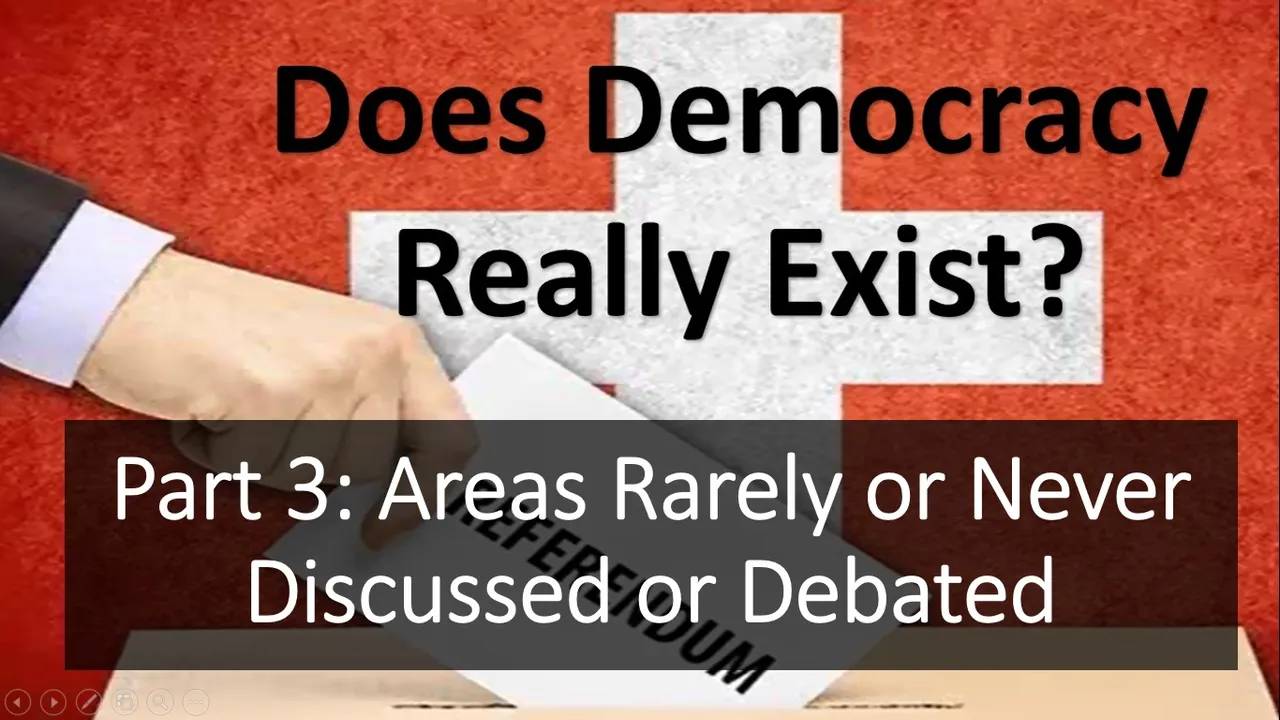
This post covers in detail various areas that are not debated in parliament and rarely discussed by the media. The lack of debate leads to an unseen political consensus. This unseen consensus results in little or no long term differences between policies pursued by any of the parties that are elected.
Democracy and Economics (Part 4) - Solutions and Alternative Structure
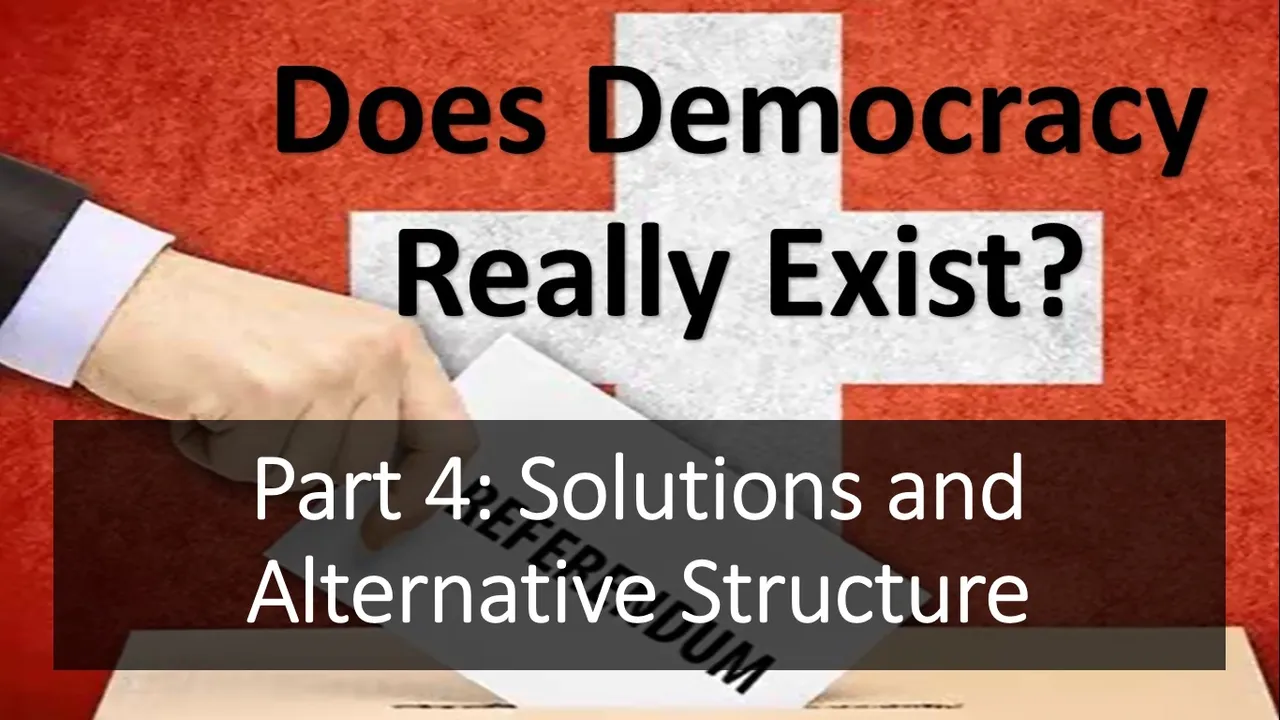
Democracy can be applied in many different ways. Despite the initial differences between ‘democratic’ systems around the world, the outcomes are fundamentally the same. We have a two party or two ideology system of ‘left’ vs ‘right’. The sides take turns to form Government once the people become frustrated with one side. Ultimately, no real positive changes ever occur. There are alternative systems of governance such as the Venus project, anarchism, blockchain economy, or a combination of ideas. Note: Initially, the Venus Project sounded like a possible alternative to our current structures. Since the post and video, I have changed my position and opinions regarding the initiative. See Smart Cities Post.
First-Past-The-Post Vs Preferential Voting Systems
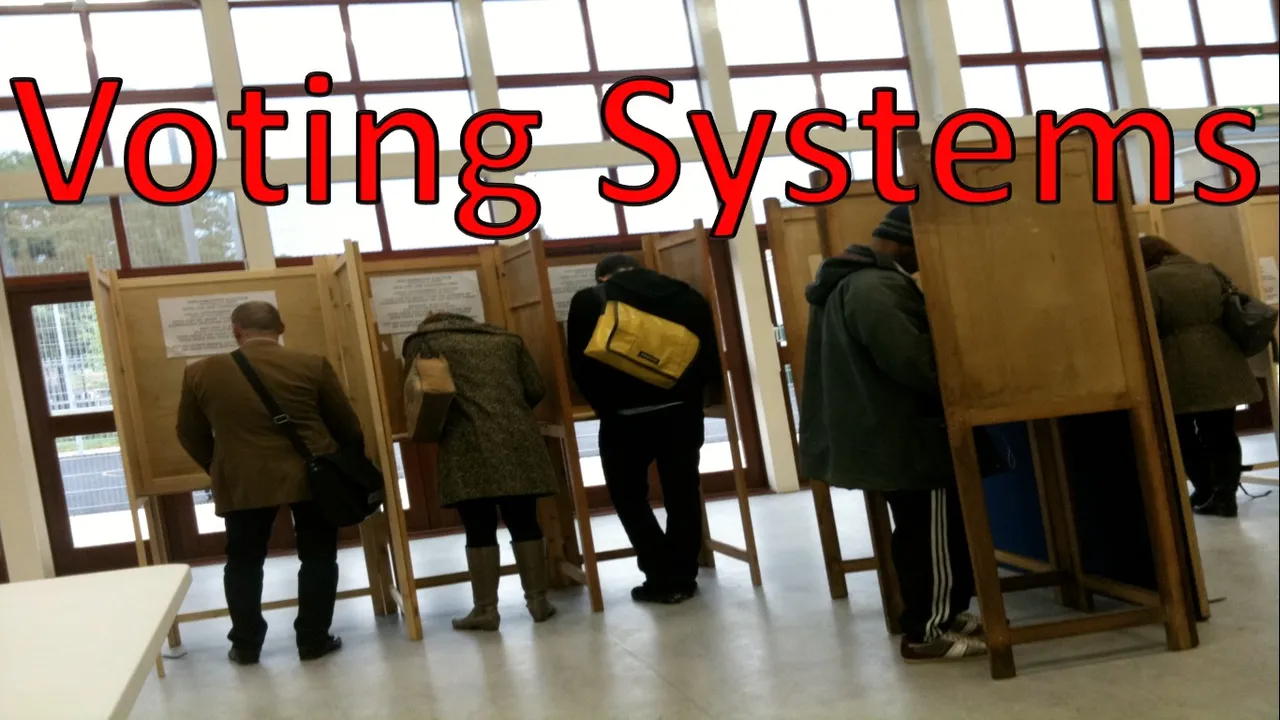
There many different types of voting systems. Each system can produce very different results as they capture different things. First-past-the-post systems, provide voters with only one choice and the candidate or party who receives the most votes wins. Preferential voting allows voters to rank or weight who they prefer from a list of candidates and/or parties. There are many types of preferential voting systems and they sometimes produce very different results.
The Power of Opposition in the Face of Growing Tyranny
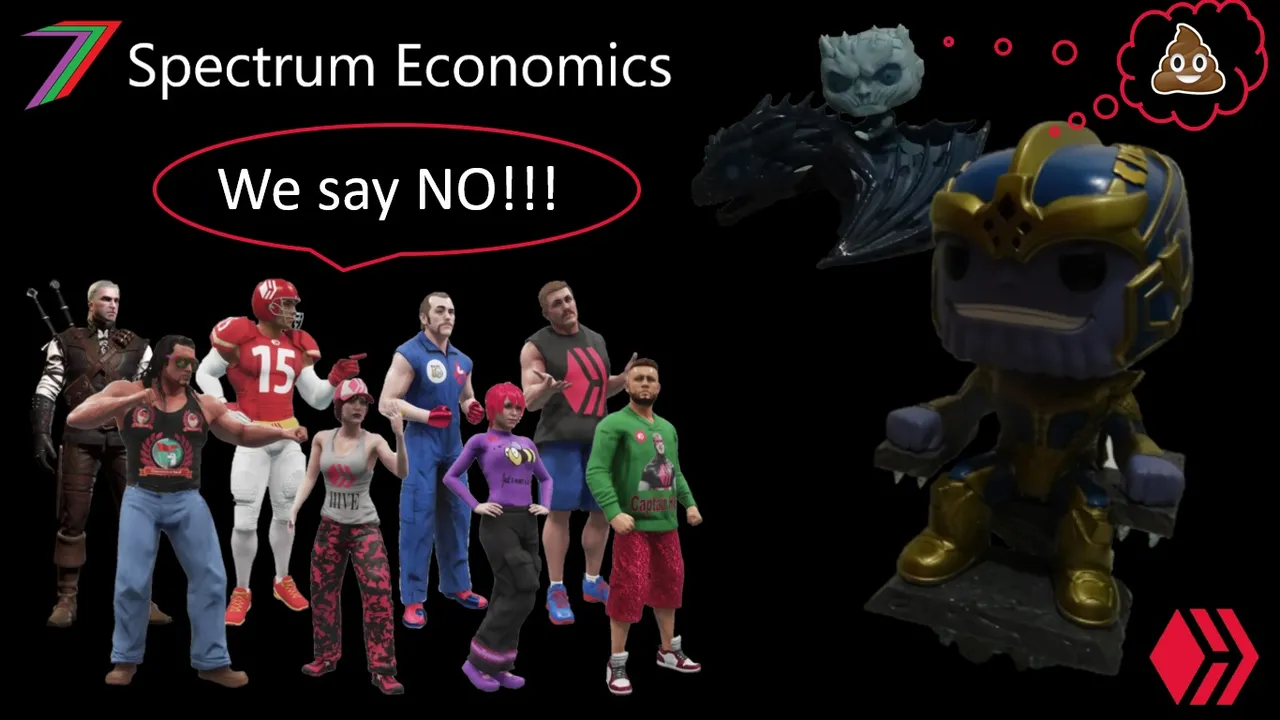
Opposition to government is almost as important as Government itself. Opposition plays the important role of holding leaders to account. This can come in the form of opposition political parties, the media, activists, and the public themselves. The quality of opposition in western countries has been very poor. Governments have exploited the Covid-19 fiasco to gain more control and power. They have done this almost completely unopposed. Opposition parties and mainstream media have supported the grab for control. Activists have been quiet or censored. The public have been the strongest form of opposition but Governments have implemented restrictions to silence us.
Banking and Financial Systems
Trade, money, debt, waste, and power
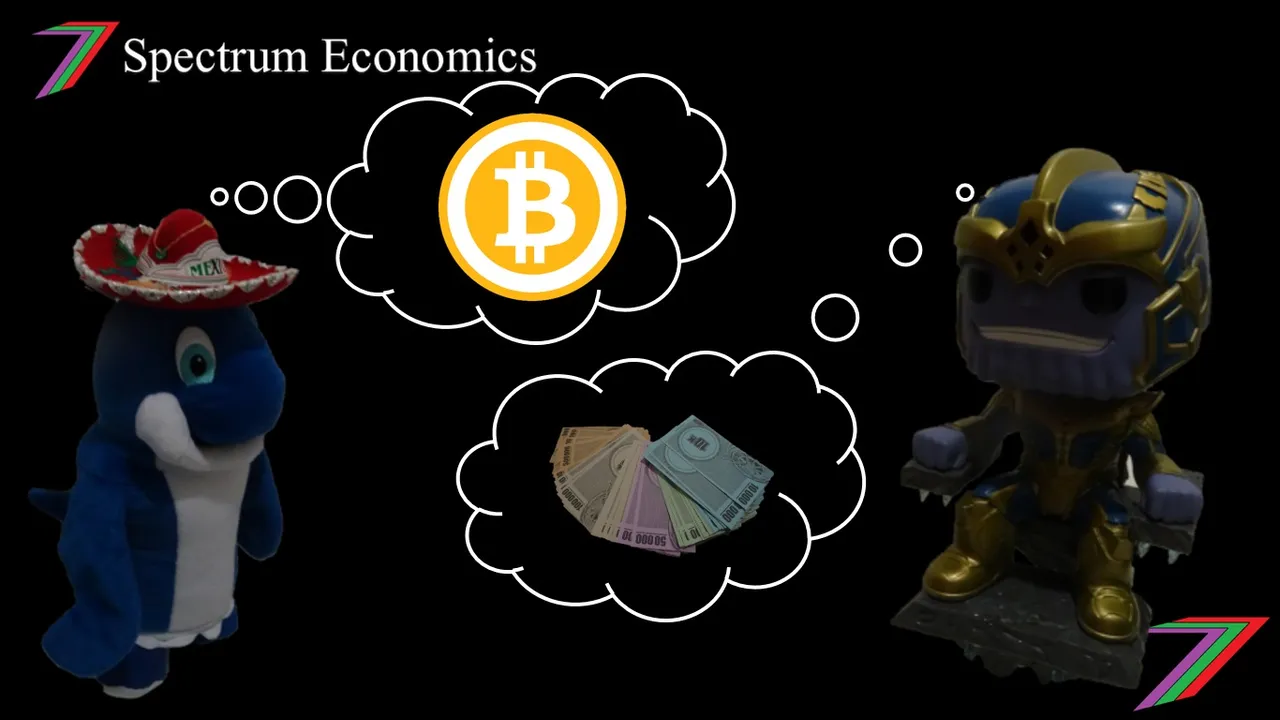
This post is not particularly revolutionary but tells a necessary story of how trade has evolved during our existence and how we got to where we are today. It begins with people doing things for themselves, takes us on journey of providing goods and services for others, the use of a medium of exchange, the degradation of this medium of exchange to fiat currency, and the eventual arrival of cryptocurrency. It describes how powerful people have taken control over money; hence, taken control over trade. It explains my growing affinity to cryptocurrency.
The Mortgage Slave

The Mortgage Slave and the update in the video took an in-depth look at how we are being controlled by debt; the biggest and most significant debt being the mortgage. The house price to income ratio has been consistently increasing for most western countries since the early 1980s. Shortage of housing and residential land and greatly reduced down payments, in percentage terms, has kept the pressure on house prices to continue to increase. People are forced to work extra hours and even get second jobs to be able to continue making payments. Increasing house prices, benefits people who have multiple properties (fully owned or funded), Government, and banks.
Cost of Living Crisis – A Collection of Symptoms caused by Serious Long-term Political Failure
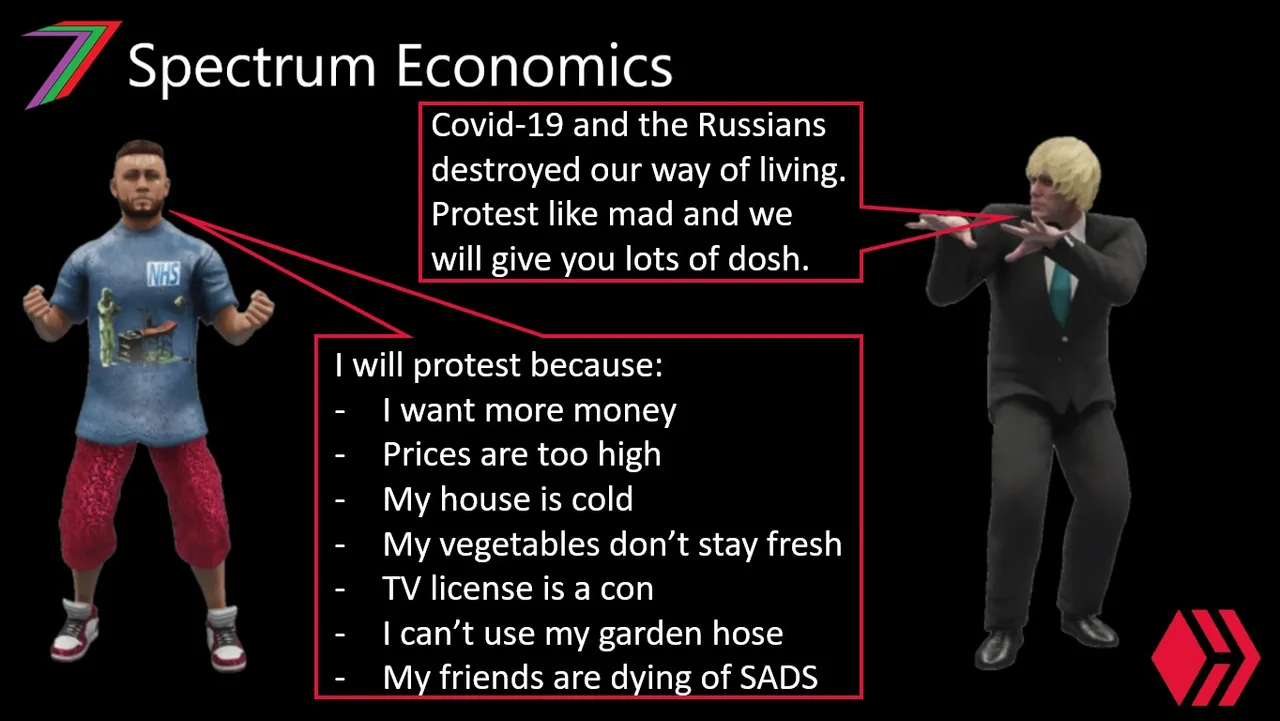
In 2020, the cost of living crisis almost became a global phenomenon. It was triggered by the response to Covid-19 and the sanctions placed on Russia. The excessive increase in the supply of money, breakdown of supply chains, and reduced access to energy stagnated growth and caused high inflation. However, the real causes of the crisis go back much further. Median hourly wages stagnated decades earlier. Household debt has been continuously increasing while savings have been continuously falling. More and people have been forced to live paycheck-to-paycheck and often need to borrow to maintain their desired standard of living.
Winners and Losers from the “Cost of Living Crisis”
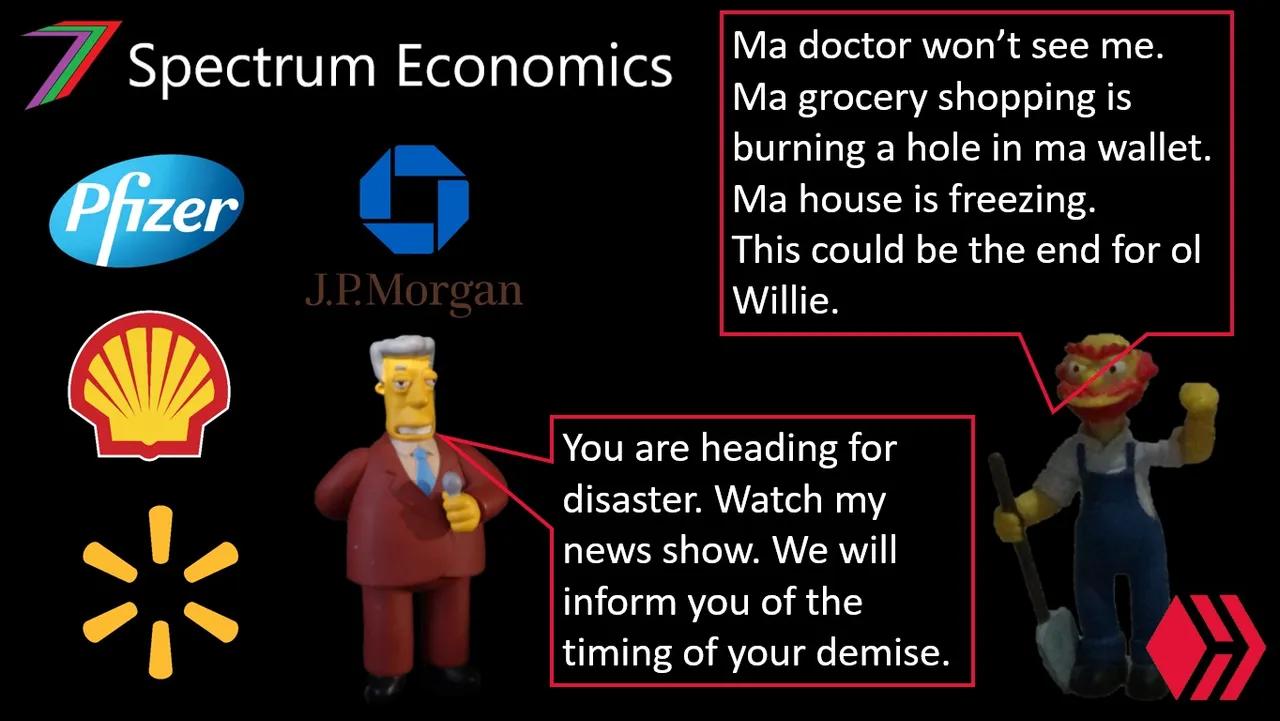
Business cycles occur naturally in economies. There are periods of strong growth followed by periods of stagnation or decline. They act as corrections for unsustainable growth. In the long-run they are good. They enable the businesses most suited to the changing environment to survive thus ensure strong and consistent growth in the future. Business cycles are rarely allowed to function naturally. Governments and Central Banks intervene in attempts to prolong the boom period. This does not prevent recessions. It only delays and eventually worsens them. When they do eventually hit, Governments continue intervening and often play a significant role in determining, which businesses survive and which ones do not.
Being controlled with our own money
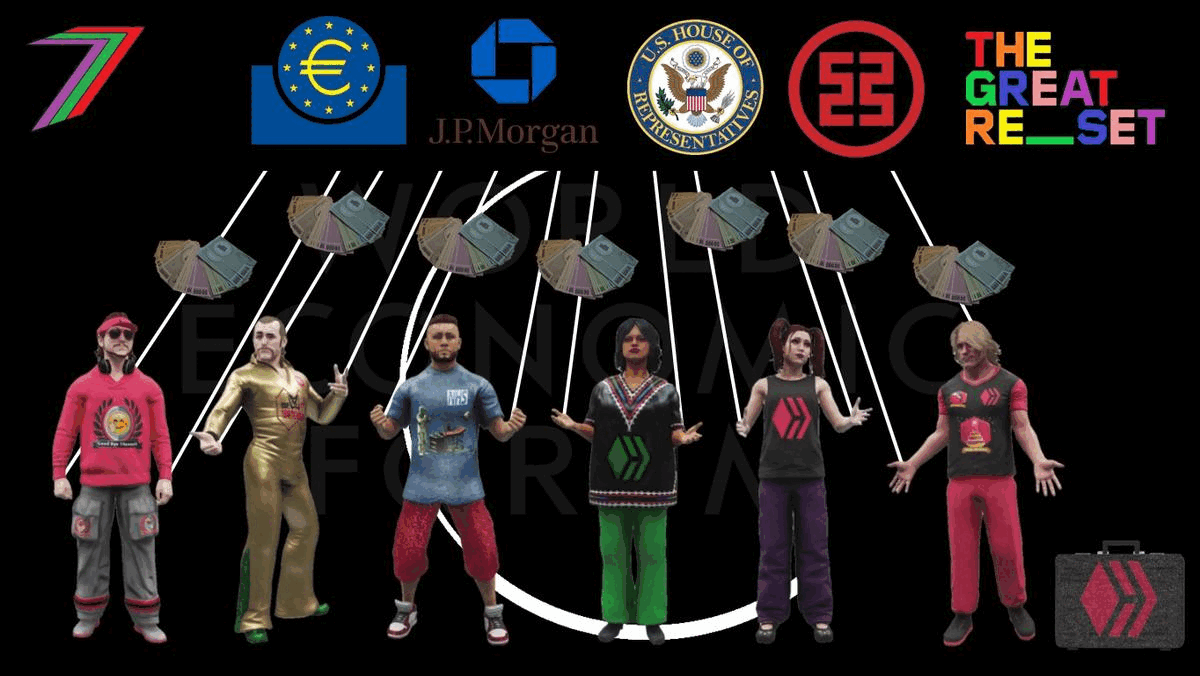
Governments, Big Business, Banks, Religions, and mainstream and social media are either controlling us directly or strongly influencing us through the control of information. However, the most powerful control is being done with our own money. Governments, the biggest banks (commercial and central), and asset management companies control a huge proportion of global wealth. Government expenditure in many western countries is around 40% of GDP. The largest banks (top 50) control about a quarter of global wealth. The 10 largest asset management companies control about 10% of global wealth; the two largest, BlackRock and Vanguard, control about half of that wealth. This post truly demonstrates the absolute power of the few.
Business Systems
A Few Thoughts on the Importance of Competition and Markets
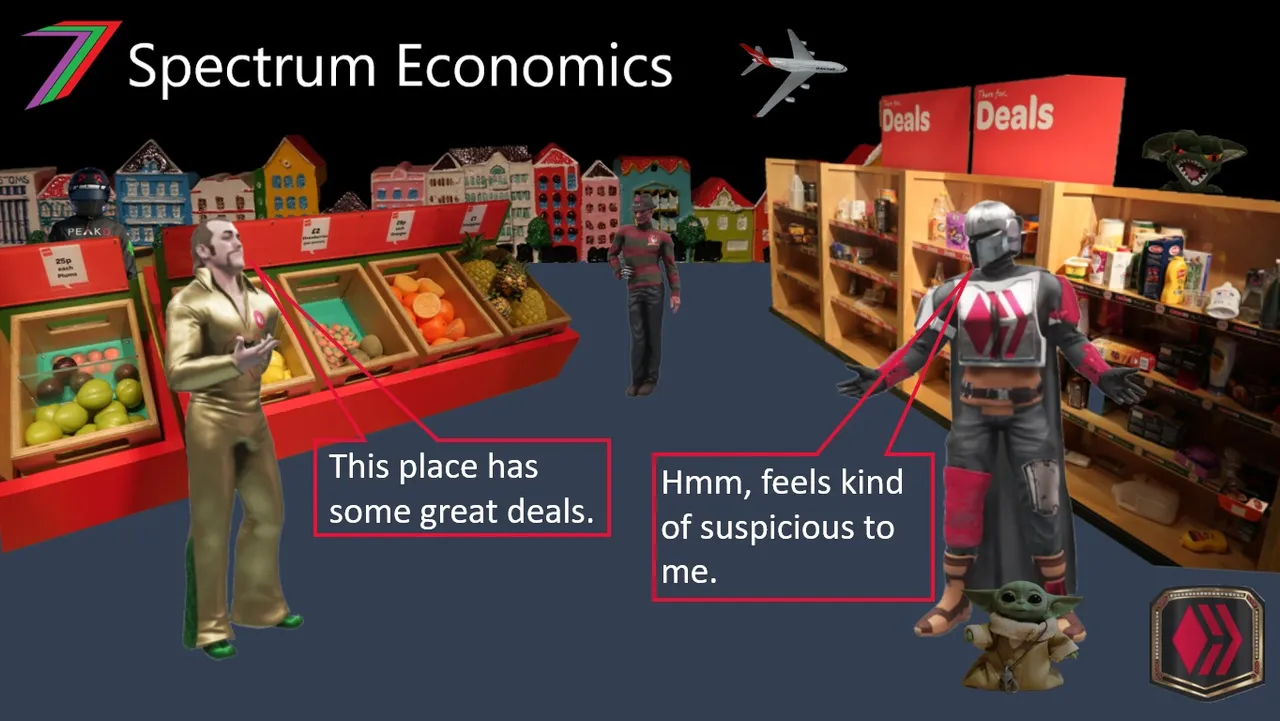
We can reach natural order and balance through competition in all markets. That would involve competition between producers, customers, and factor inputs (land, labour, capital, and entrepreneurship). Lack of competition in any of these areas leads to distortion in favour of a particular group. Lack of competition between producers creates monopoly power. Lack of competition between customers creates monopsony power. Lack of competition between factors of production leads to cost-push inflation. The post discusses several different scenarios where competition exists or is lacking.
Exploitation of the Poorest Countries
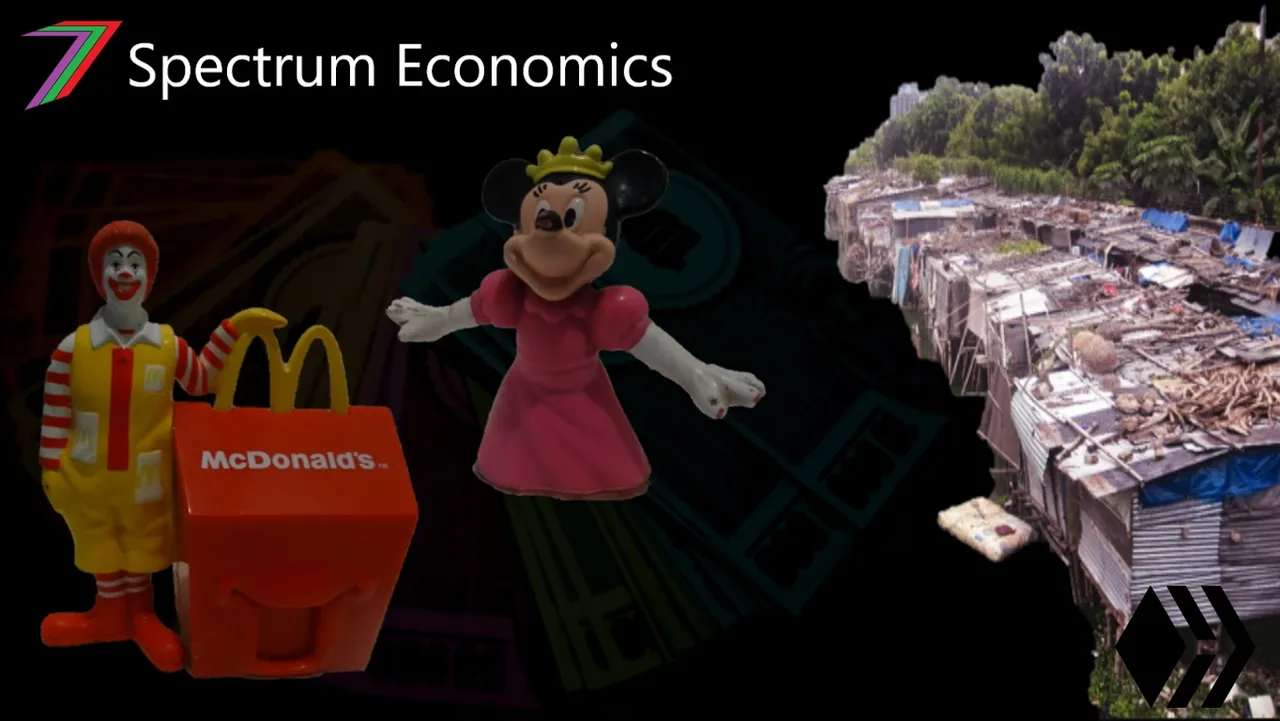
There is a huge difference in wealth between the richest and poorest countries. This posts considers the 12 poorest countries based on median incomes. It explores the reasons why these countries are the poorest in the world. Many reasons were identified. These include geographical location, culture, and history. The biggest reasons appear related to poorly conducted international trade, corruption within their own Governments, and exploitation from large multinational countries.
Entrepreneurship should be encouraged by other entrepreneurs

Entrepreneurship is an essential and often underestimated factor of production. Entrepreneurs pull all the other factors of production together. They risk their own wealth to provide goods and services. They increase competition in the market, which increases quality and efficiency. We could argue that competition is bad for business as it erodes profits and increases risk of failure. It is arguably bad for bigger businesses as it reduce monopoly power but it has the potential to be good for smaller businesses. More competition means more smaller businesses are surviving for this competition to be sustained. More small businesses also means there are more opportunities for businesses to cooperate; thus, making the smaller businesses stronger and more resilient.
Oligopoly – The market structure that does not let the market decide
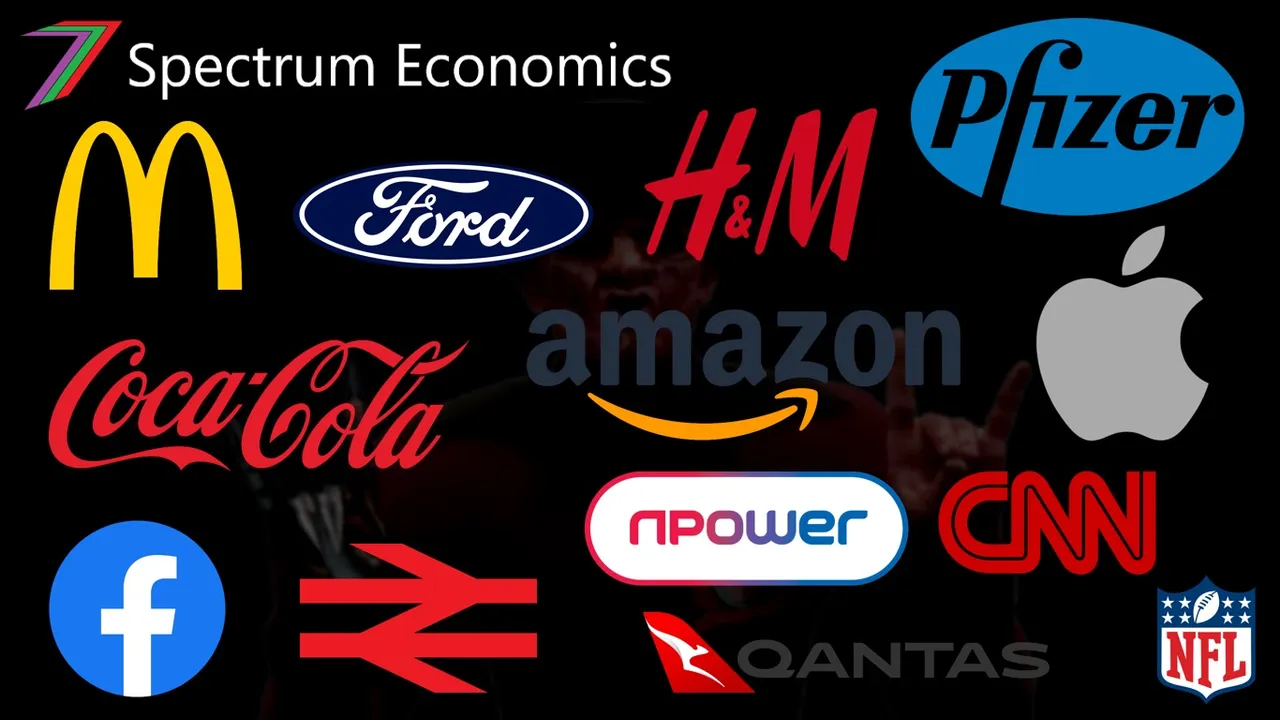
Capitalism is often criticised for creating and widening inequality. The owners of capital are over compensated and the rest of us are trapped at the same or declining standard of living. This happens because markets are dominated by a few very large businesses. Lack of competition between businesses protects the profits of the few. This is desirable for the biggest businesses and Government. The businesses are motivated by profits and Governments are motivated by direct access to a few business leaders who are able to benefit their careers far more than millions of small business owners. Big business can maintain the support of the Government as they are able to influence the popularity of politicians. Crony capitalism is the problem and not free-market capitalism. Free markets encourage competition and can encourage cooperation. Competition prevents anyone getting too far ahead and cooperation enables firms to benefit from shared knowledge. Competition increases for hiring employees; therefore wages are more likely to increase with productivity. Employees also have greater input in the running of businesses because they would be smaller. They would be closer to the upper management and owners.
Addicted to Poison
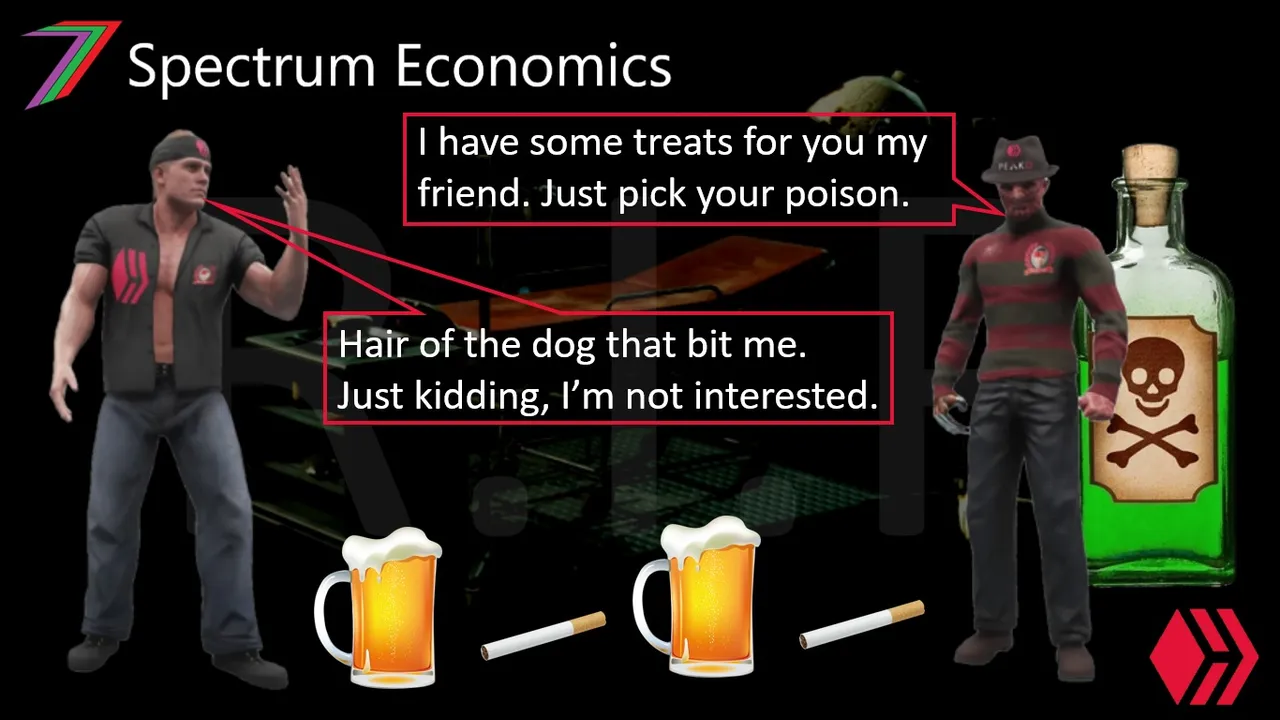
Many people suffer from some form of addiction. Some addictions are more harmful than others. Drug, tobacco, and alcohol addictions cause serious and often fatal health conditions. Drug and alcohol addiction has been consistently increasing in the USA and UK. Whereas, tobacco addiction is declining. There are many other forms of addiction that do not cause as serious illness but still harmful in other ways. Addiction leaves people vulnerable to control as they crave the subject of their addiction. They become willing to do things they would not under ordinary circumstances. They are willing to pay far more to obtain the subject of their addiction. This enables businesses to charge a higher price and for Governments to obtain more tax.
Will we always have a market for lemons?
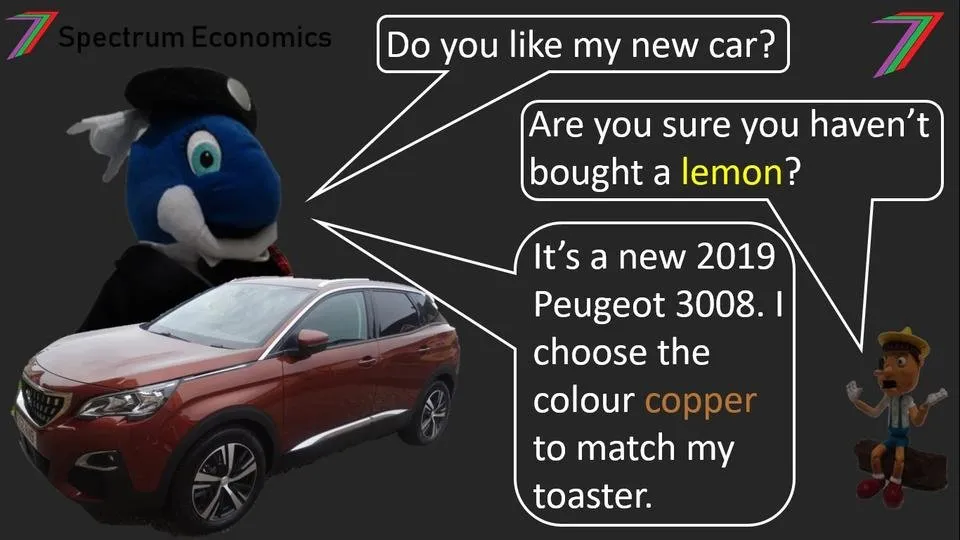
George A. Akerlof wrote a powerful economic paper about market failure and asymmetric information in second-hand markets. The buyers do not know the quality of a product whereas the seller does. The buyer factors in the risk that he or she could be buying an inferior product (a lemon). Therefore, adjusts his or her offer to factor in this risk. A seller that has a high quality product (a peach) is unlikely to accept a low offer because it is below what they believe the product is worth. However, a seller who is selling a lemon will accept the offer as it is a high offer for an inferior product. This results in more lemons being sold than peaches. This leads to buyers adjusting their offers even lower, which will eventual eliminate all peaches from the market. Therefore, there is market failure for higher quality products when there is asymmetric information.
Needs, Wants and Outputs
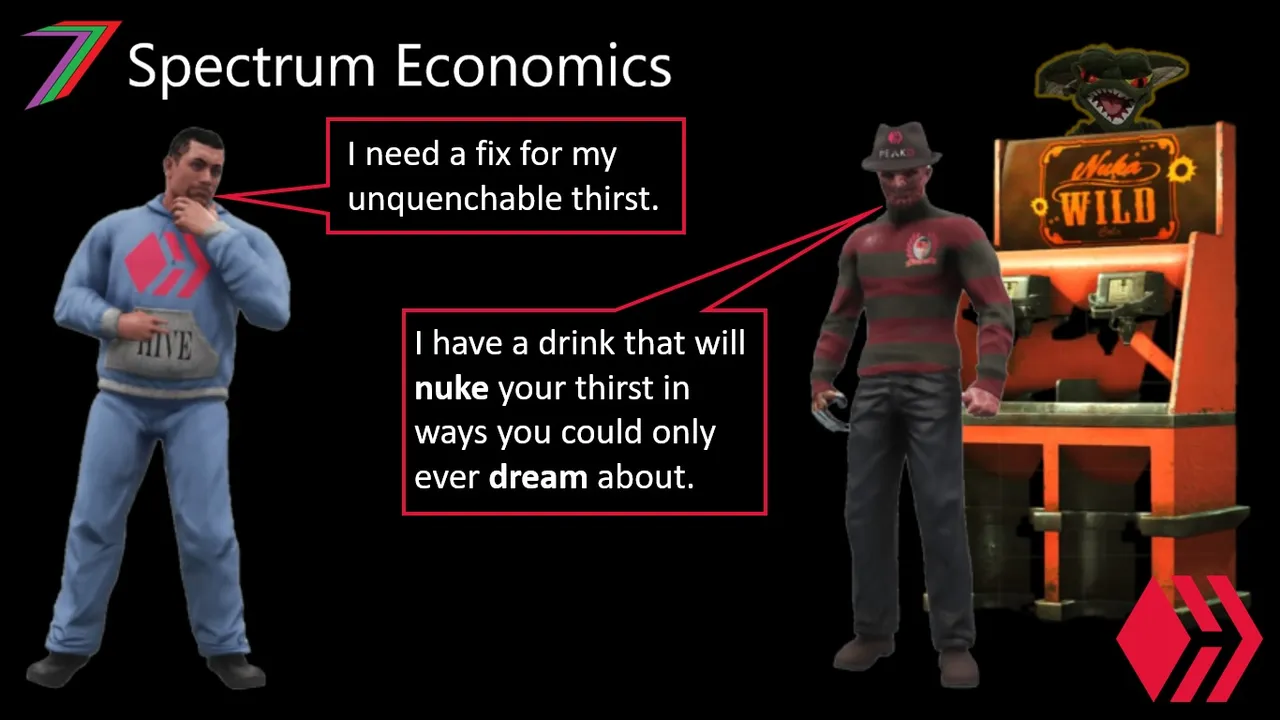
Who determines what should be produced and who determines who should produce it. If we have free markets, the people decide for themselves what they want and the market responds by producing it. The businesses that are able to best meet what the people want in terms of quality and price while also obtaining a profit will become the ones producing it. Unfortunately, no countries have consistently free-markets. Governments are gaining more control over what is produced. In some countries the Governments are also the main producers but in many countries Governments are turning to the private sector (normally big business) to be the producers. This process bypasses the markets and decisions are made by just a few people.
My summary and opinions regarding ‘The Great Reset’ – Part 6: Conclusion
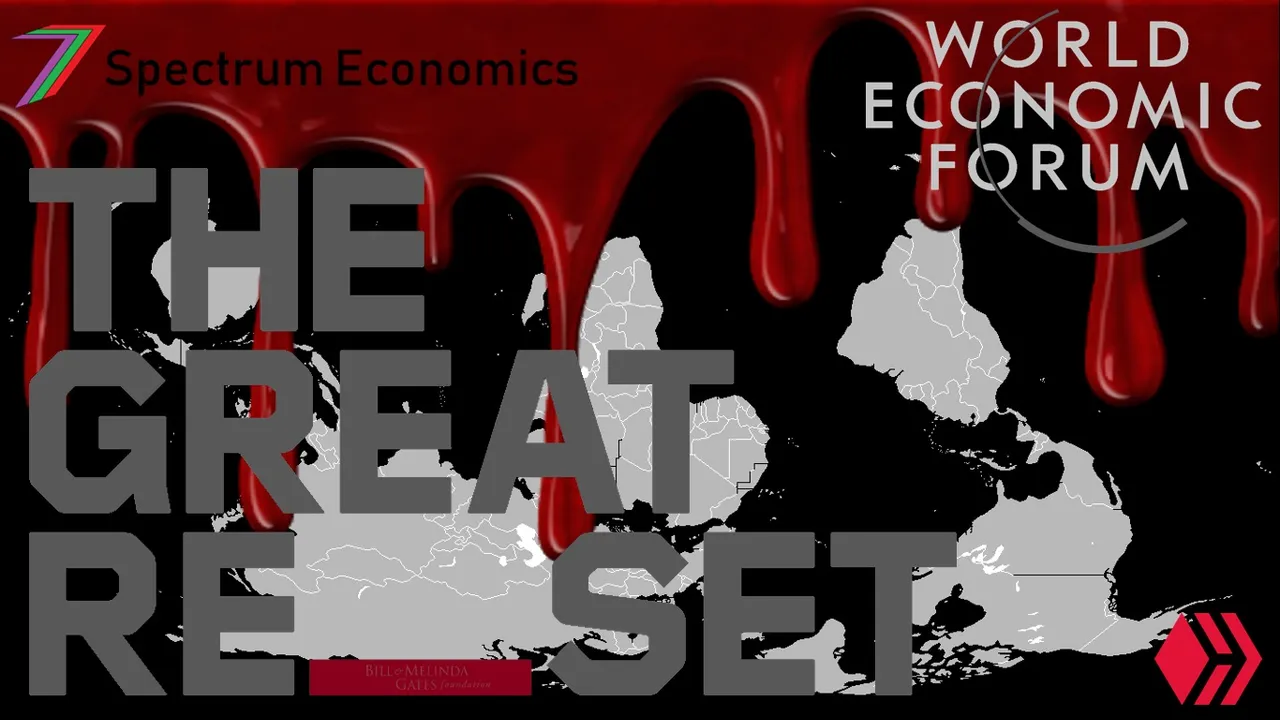
The Great Reset is a book written by Klaus Schwab and Thierry Malleret. It has also become a cornerstone initiative of the World Economic Forum. It has used the Covid-19 fiasco as an opportunity to promote major changes to economic and political systems. The book makes some accurate assessments of some of the problems that existed prior to the Covid-19 fiasco. However, the proposed changes involve greater centralisation of power. Power is centralised in most countries. The Great Reset proposes that much of the centralised power shift to global organisations. Thus, increasing the centralisation of power even further.
A Peripheral look at the Great Reset and Fourth Industrial Revolution
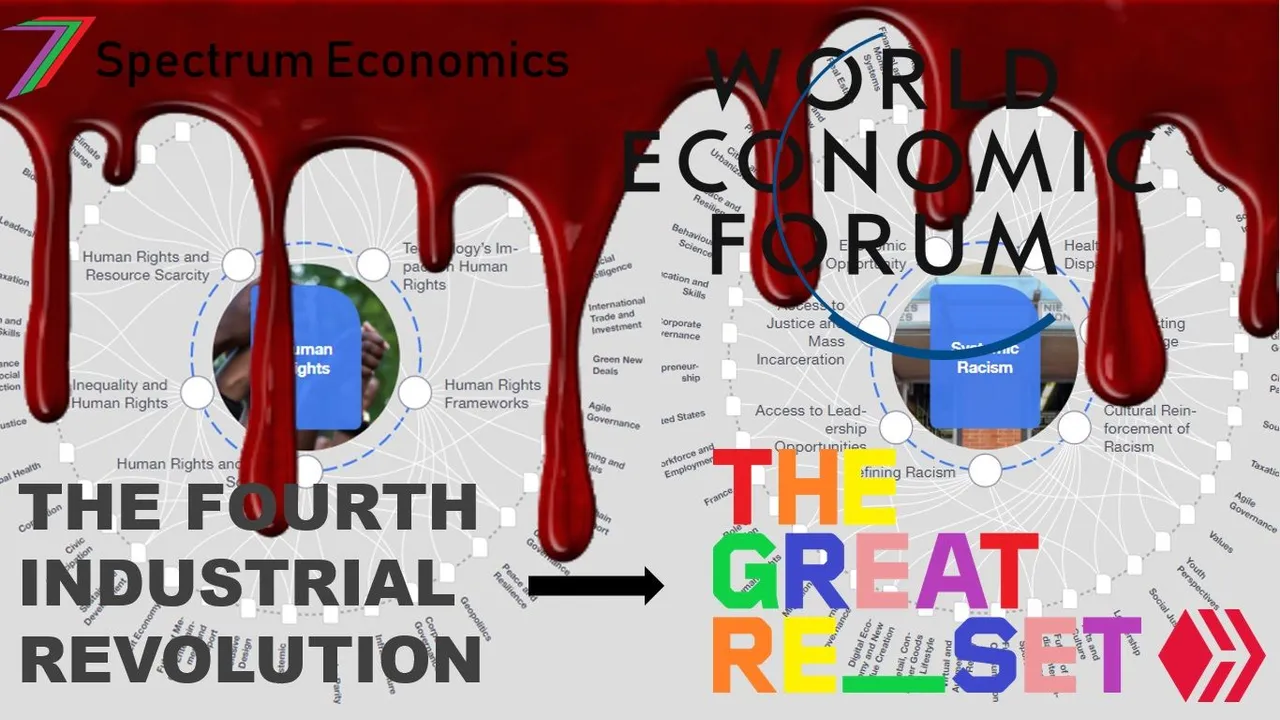
Another cornerstone initiative of the World Economic Forum is the Fourth Industrial Revolution. The Fourth Industrial Revolution was developed several years before the Great Reset ideology was published. There are several similarities between the two. Much of the content and initiatives linked to the Great Reset were developed from ideas described as part of the Fourth Industrial Revolution. This post looks at the linkages between various areas in the Great Reset and Fourth Industrial Revolution literature.
Utility Production and Consumption
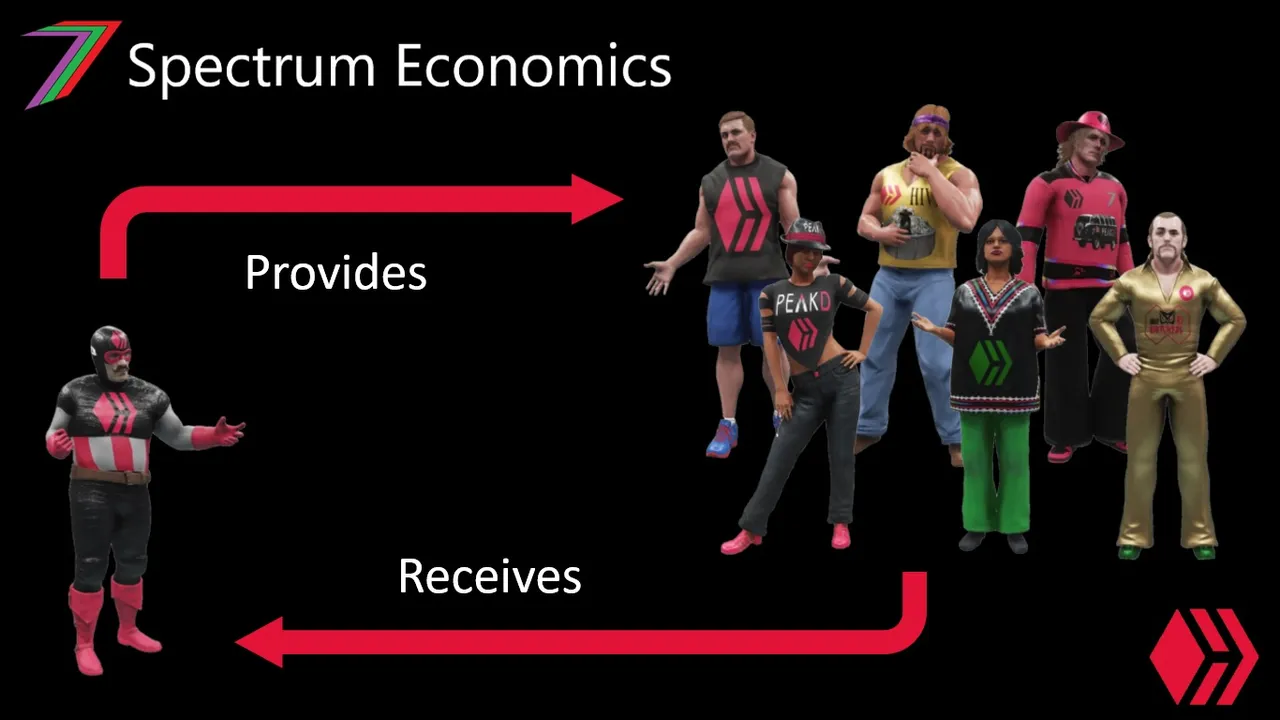
People provide or contribute to providing outputs so that they can receive something in return. This is typically in the form of a salary. They use this salary to buy outputs produced by other people. We could argue that people provide utility to others so as to receive utility themselves. The amount of utility provided rarely equates to the amount of utility received in return. It is impossible for these to equate as different people value different things differently.
Economic Concepts #6 – General Equilibrium
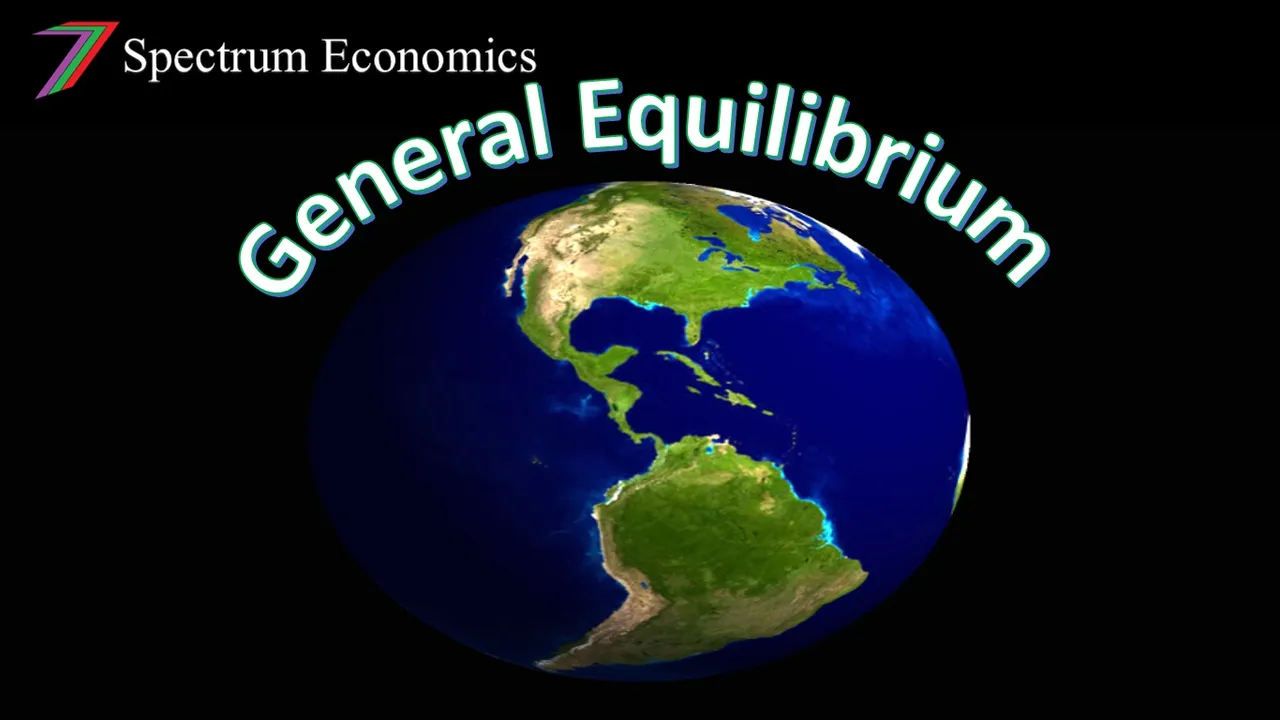
Everything in the world is interconnected and interrelated. This can be clearly demonstrated in business. Businesses rely on each other. They rely on suppliers and customers. The goods and services produced by businesses are also interrelated. Some are considered complementary. They add value to each other when consumed together. Some are substitutionary. They are alternatives to each other, if one is not available another can be used. What affects one affects another. General equilibrium considers how different markets affect each other. A policy targeting one market is likely to spill over and affect multiple markets. This post contains a technical example of a basic general equilibrium model.
The Attempted Rebirth of Stakeholder Capitalism
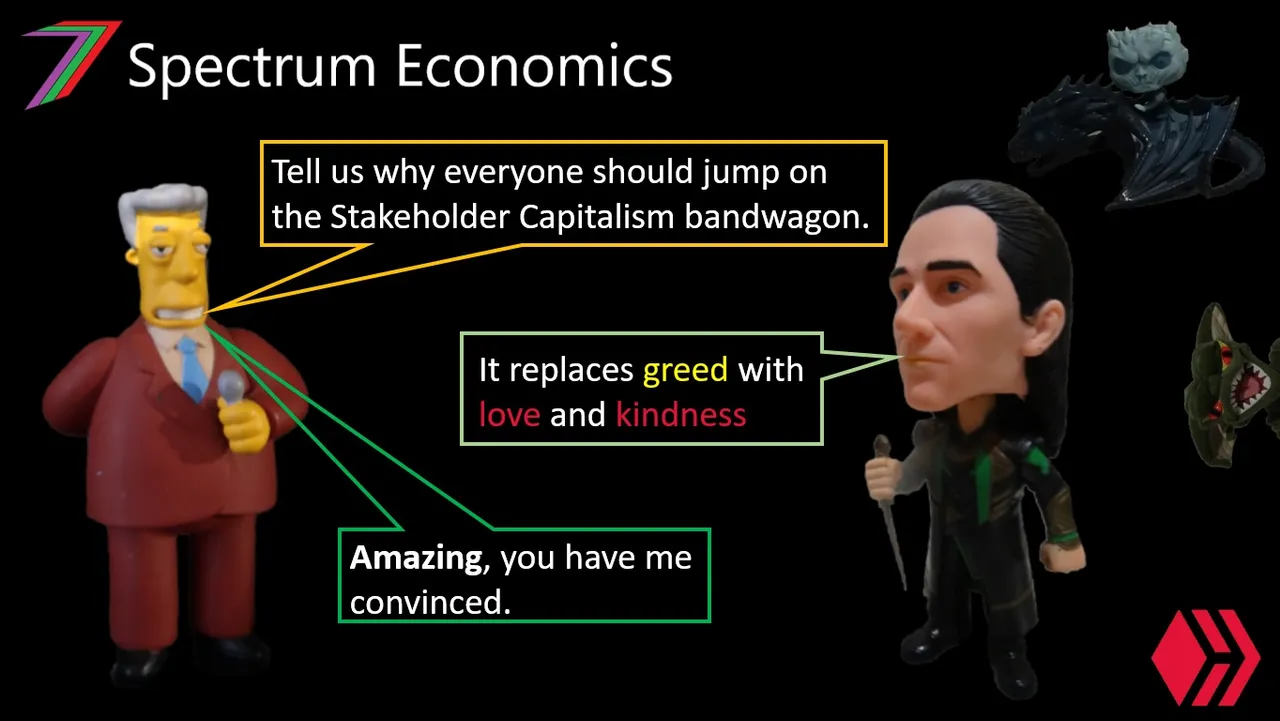
Stakeholder capitalism is not a new concept. It has been attempted in the past with minimal success. Instead, other forms of capitalism have been more strongly pursued. The World Economic Forum wants to revitalise stakeholder capitalism based on their claimed failure of ‘shareholder’ capitalism. They believe businesses should not be just focused on maximising returns for shareholders but should be focused on meeting goals for all relevant stakeholders. Capitalism in its existing form has many problems. Most of them are because of crony capitalism rather than free-market capitalism. The problems identified by the World Economic Forum can be mostly addressed through the operation of free-markets.

